
- Hiking & Trekking
- Outdoor activities

What is Camping? Complete Guide
Camping is an outdoor recreational activity that involves spending time in a natural setting away from civilization. It can be a solo adventure, a romantic getaway, or a fun family vacation. Camping allows you to connect with nature, escape the stresses of daily life, and experience the beauty and serenity of the outdoors.
The history of camping can be traced back to the early 19th century when it was mainly practiced by hunters and fishermen. However, camping as a leisure activity began to gain popularity in the early 20th century with the development of more comfortable and portable camping gear. Today, camping has become a beloved pastime enjoyed by people of all ages and backgrounds.
People go camping for a variety of reasons. Some want to escape the hustle and bustle of city life and unwind in a peaceful natural setting. Others seek adventure and the opportunity to explore new places and challenge themselves physically. Some simply enjoy the sense of community that camping offers, whether it’s sharing stories around a campfire or meeting new people on a group camping trip.
Whether you are a seasoned camping enthusiast or a first-time camper, there are many different types of camping experiences to choose from. From car camping to backpacking, glamping to RV camping, there is a camping style to suit every preference and level of experience. In this complete guide to camping , we will explore the different types of camping, how to plan a camping trip, essential camping gear, camping activities, camping etiquette and safety, and the benefits of camping.
Table of Contents
Types of camping
Camping is a diverse activity that can be enjoyed in a variety of different ways. Here are some of the most popular types of camping:
- Car camping : Car camping involves driving to a campsite and setting up camp next to your car. This is a popular form of camping for families and those who prefer to have more amenities and creature comforts available. Car camping allows for easy access to your gear, and you can bring along a cooler, camp chairs, and other items that might not be practical for more remote camping trips.
- Backpacking : Backpacking involves carrying all of your camping gear on your back and hiking to a remote location to set up camp. This is a popular form of camping for those who enjoy the challenge of hiking and want to get away from crowded campsites. Backpacking requires more planning and preparation than car camping, but it allows for a more immersive wilderness experience.
- Glamping : Glamping, or “glamorous camping,” is a more luxurious form of camping that involves staying in a pre-pitched tent or yurt that is equipped with comfortable furniture, electricity, and other amenities. Glamping is popular among those who want to experience the great outdoors without sacrificing comfort and convenience.
- RV camping : RV camping involves traveling in a recreational vehicle, such as a motorhome or travel trailer, and staying at campgrounds that are equipped with RV hookups. This is a popular form of camping for retirees and families who enjoy the freedom and flexibility of traveling with their own accommodations.
- Canoe camping : Canoe camping involves traveling by canoe or kayak to a remote campsite and setting up camp along the way. This is a popular form of camping for those who enjoy water sports and want to explore the natural beauty of lakes and rivers.
No matter which type of camping you choose, there are benefits and challenges to each. It’s important to choose the type of camping that best suits your preferences, level of experience, and desired level of comfort.
Planning a camping trip
Planning a camping trip can be a fun and exciting experience, but it also requires careful consideration and preparation. Here are some key factors to consider when planning your camping trip:
Choosing a campsite
One of the most important decisions when planning a camping trip is choosing the right campsite. Consider factors such as location, proximity to hiking trails or other activities, availability of amenities such as toilets and showers, and cost. It’s also important to check whether reservations are required and to make them in advance if necessary.
Packing checklist
Creating a packing checklist is essential for ensuring that you have all the necessary gear for your camping trip. Some essential items to include on your checklist include a tent, sleeping bag, sleeping pad, cooking equipment, food, water, clothing appropriate for the weather, and navigation tools.
Setting up camp
Setting up camp can be a challenge, especially if you’re a first-time camper. Make sure to practice setting up your tent and other equipment before your camping trip, and bring along a hammer and extra tent stakes in case of windy conditions. It’s also important to choose a flat, level campsite and to follow Leave No Trace principles by minimizing your impact on the environment.
Campfire safety
Campfires are an essential part of the camping experience, but it’s important to practice campfire safety to prevent accidents and protect the environment. Choose a safe location for your campfire, use only designated fire rings or pits, and never leave a fire unattended. Make sure to also follow any fire regulations or restrictions in the area where you’re camping.
Leave No Trace principles
Leave No Trace principles are guidelines for minimizing your impact on the environment while camping. These include practices such as packing out all trash and waste, staying on designated trails, and respecting wildlife and natural resources. Following Leave No Trace principles is essential for preserving the beauty and integrity of natural areas for future generations.
By carefully considering these factors and planning ahead, you can ensure that your camping trip is safe, comfortable, and enjoyable. Don’t forget to also check the weather forecast and bring appropriate gear for the conditions, and to research any rules or regulations specific to the area where you’re camping.
Essential gear for camping
Having the right gear is essential for a successful camping trip. Here are some essential items to consider when packing for your next camping adventure:
A reliable and sturdy shelter is essential for a comfortable camping trip. The most common type of shelter for camping is a tent, which comes in various sizes and styles. Look for a tent that is appropriate for the number of people in your party and the conditions you will be camping in.
Sleeping gear
A good night’s sleep is essential for enjoying your camping trip. Bring along a sleeping bag that is appropriate for the temperature and climate of your camping destination, as well as a sleeping pad or air mattress for added comfort.
Cooking equipment
Cooking equipment is essential for preparing meals during your camping trip. A portable stove or grill, along with pots, pans, and utensils, will allow you to cook a variety of meals in the great outdoors. Don’t forget to also bring along a cooler and ice to keep food and drinks fresh.
Clothing and footwear
Choosing the right clothing and footwear is important for staying comfortable during your camping trip. Dress in layers to be prepared for changes in weather, and choose clothing made of moisture-wicking and quick-drying materials. Don’t forget to also bring appropriate footwear, such as hiking boots or sandals.
Navigation tools
Navigation tools such as a map, compass, or GPS device are important for finding your way around the campsite and exploring the surrounding area. Make sure to also bring a flashlight or headlamp and extra batteries for navigating in low-light conditions.
Lighting and communication devices
Lighting and communication devices are important for staying safe and connected during your camping trip. A lantern or campfire can provide light for your campsite, while a radio or cell phone can be used for emergency communication.
By bringing along these essential items and choosing gear appropriate for your camping destination and style, you can ensure that your camping trip is comfortable and enjoyable. Remember to also follow Leave No Trace principles and minimize your impact on the environment by packing out all trash and waste.
Camping activities
Camping offers a wide range of activities to enjoy in the great outdoors. Here are some popular activities to consider during your next camping trip:
1. Hiking and backpacking
Hiking and backpacking are popular activities for exploring the natural beauty of the outdoors. Whether you prefer a leisurely stroll or a challenging ascent, there are hiking trails for every skill level. Backpacking involves carrying your camping gear with you as you hike to a remote location, providing a more immersive wilderness experience.
Fishing is a popular activity for campers, with many campsites located near bodies of water where you can fish for trout, bass, and other types of fish. Make sure to obtain the proper licenses and permits before fishing, and follow any regulations or restrictions in the area.
3. Wildlife watching
Camping provides a unique opportunity to observe wildlife in their natural habitat. Whether it’s spotting deer, birds, or even bears, there are many opportunities to see and appreciate the diversity of wildlife in the outdoors. Make sure to observe wildlife from a safe distance and avoid feeding them.
4. Swimming and watersports
Swimming and watersports are popular activities for cooling off and having fun during hot summer days. Many campsites are located near lakes, rivers, or the ocean, providing opportunities for swimming, boating, kayaking, and other watersports.
5. Campfire cooking and socializing
Gathering around a campfire is a classic camping activity that provides an opportunity for socializing and cooking delicious meals. Whether it’s roasting marshmallows or cooking a full meal over the campfire, campfire cooking is a fun and memorable part of the camping experience.
No matter what activities you choose to enjoy during your camping trip, make sure to always follow Leave No Trace principles and respect the natural environment.
Camping etiquette and safety
Camping etiquette and safety are important for ensuring a safe and enjoyable camping experience for all. Here are some key considerations for practicing camping etiquette and safety:
Respect for nature and wildlife
Respect for nature and wildlife is essential for preserving the beauty and integrity of natural areas. Practice Leave No Trace principles by minimizing your impact on the environment, staying on designated trails, and packing out all trash and waste. Respect wildlife by observing them from a safe distance, not feeding them, and storing food and garbage properly to avoid attracting them to your campsite.
Proper waste disposal
Proper waste disposal is important for maintaining a clean and healthy campsite. Bring along trash bags and pack out all trash and waste. Dispose of human waste properly by using designated toilets or burying it in a cathole at least 200 feet from water sources.
Safety precautions in the wilderness
Safety precautions in the wilderness are important for protecting yourself and others during your camping trip. Always carry a first aid kit and know how to use it. Be aware of potential hazards such as wildlife, poisonous plants, and inclement weather, and take appropriate precautions. Familiarize yourself with the area and be prepared for emergencies by carrying a whistle, signal mirror, and other emergency supplies.
Campfire safety tips
Campfire safety is essential for preventing accidents and protecting the environment. Choose a safe location for your campfire, use only designated fire rings or pits, and never leave a fire unattended. Keep a bucket of water or a shovel nearby in case of emergency and make sure to fully extinguish the fire before leaving the campsite.
By following these camping etiquette and safety tips, you can ensure a safe and enjoyable camping experience for yourself and others. Remember to always be aware of your surroundings and respect the natural environment.
Benefits of camping
Camping offers a variety of benefits for both physical and mental health. Here are some key benefits of camping:
- Connection with nature: Camping provides an opportunity to connect with nature and experience the beauty and serenity of the outdoors. Spending time in nature can reduce stress, boost mood, and improve overall well-being.
- Physical activity: Camping involves physical activity such as hiking, swimming, and other outdoor activities , providing a fun and enjoyable way to stay active and healthy.
- Improved sleep: Camping can improve sleep quality by resetting the body’s natural sleep-wake cycle and reducing exposure to artificial light and technology.
- Bonding with family and friends: Camping provides an opportunity to bond with family and friends, creating memorable experiences and fostering strong relationships.
- Stress reduction: Camping provides a break from the stresses of daily life and allows for relaxation and rejuvenation. Being in nature has been shown to reduce stress hormones and improve overall mood.
- Increased creativity: Being in a natural setting can increase creativity and cognitive function, allowing for new ideas and inspiration to flow.
Overall, camping provides a unique opportunity to disconnect from the hustle and bustle of daily life and connect with nature and others. Whether it’s for adventure, relaxation, or simply enjoying the great outdoors, camping offers a variety of benefits for both physical and mental health.
What is the purpose of camping?
Camping serves various purposes, and different people may have different motivations for engaging in this activity. Some common purposes of camping include:
- Recreation: Camping provides an opportunity to relax, unwind, and escape the daily grind. It allows people to connect with nature, engage in outdoor activities like hiking, fishing, and wildlife observation, and enjoy leisure time with friends and family.
- Adventure and challenge: Camping can be a test of one’s skills and resourcefulness. Setting up a campsite, building a fire, and cooking outdoors can be challenging and rewarding experiences. Many people enjoy the sense of accomplishment that comes from successfully navigating the outdoors.
- Education and personal growth: Camping can be an educational experience, as people learn about nature, wildlife, and outdoor survival skills. It can also foster personal growth by encouraging self-reliance, problem-solving, and teamwork.
- Social bonding: Camping often involves group activities, which can strengthen relationships and create lasting memories. It provides a unique environment for people to connect and share experiences, fostering a sense of community and belonging.
- Health and wellness: Camping can have physical and mental health benefits. Engaging in outdoor activities can promote physical fitness, while the natural setting and slower pace can help reduce stress and improve mental well-being.
- Environmental awareness: Camping can inspire a greater appreciation for the natural world and foster a sense of responsibility to protect and conserve the environment.
What is the most important thing for camping?
While there are many important factors to consider when camping, the most critical aspect is ensuring the safety and well-being of all participants. Here are some key elements to prioritize when camping:
- Proper planning and preparation: Research the camping location, weather conditions, and potential hazards in the area. Make sure to inform someone about your trip, including your destination and expected return date.
- Appropriate gear and clothing: Bring the necessary equipment, such as a tent, sleeping bag, and cooking supplies. Pack appropriate clothing for the weather conditions, including layers for warmth and waterproof items for rain protection.
- Food and water: Plan and pack sufficient food and water for the duration of the trip, taking into account the needs of all participants. It’s also important to know how to store food properly to avoid attracting wildlife.
- Navigation: Bring a map, compass, or GPS device to navigate the area, and ensure you know how to use them. Avoid relying solely on electronic devices, as batteries can fail and signals can be lost.
- First-aid and emergency preparedness: Carry a well-stocked first-aid kit and know how to use its contents. Be prepared for emergencies by having a communication plan, signaling devices (such as a whistle or mirror), and knowledge of basic first aid and CPR.
- Leave No Trace principles: Follow Leave No Trace guidelines to minimize your impact on the environment, including properly disposing of waste, respecting wildlife, and leaving natural and cultural features undisturbed.
- Campsite selection and setup: Choose a safe, level location for your campsite, taking into consideration factors such as weather, wildlife, and potential hazards. Set up your tent and campsite with care, ensuring proper ventilation and a safe distance from fire sources.
By focusing on safety and preparedness, you can help ensure a positive camping experience for yourself and others.
What are the basic skills of camping?
Camping requires a variety of basic skills to ensure a safe, comfortable, and enjoyable experience. Some essential camping skills include:
- Trip planning and preparation: Research your destination, understand the local regulations and potential hazards, and create a packing list tailored to the location and weather conditions.
- Setting up a tent: Learn how to properly pitch a tent, ensuring that it is secure and stable, with adequate ventilation and protection from the elements.
- Building a campfire: Understand how to safely build, maintain, and extinguish a campfire, following local regulations and Leave No Trace principles.
- Cooking outdoors: Familiarize yourself with outdoor cooking techniques using a camp stove or campfire, as well as proper food storage and handling practices to minimize wildlife encounters.
- Navigation: Learn how to read a map, use a compass, and navigate with a GPS device. Develop an understanding of basic orienteering skills and always carry backup navigation tools.
- First aid and emergency preparedness: Carry a well-stocked first-aid kit and know how to use its contents. Learn basic first aid and CPR, and be prepared for emergencies with a communication plan and signaling devices.
- Knot tying: Learn essential knots for camping, such as the bowline, taut-line hitch, and clove hitch, which can be useful for securing tents, tarps, and gear.
- Hiking and backpacking skills: Understand the basics of hiking, such as pacing, foot care, and proper backpack fitting, as well as trail etiquette and Leave No Trace principles.
- Water treatment: Learn how to locate and purify water from natural sources using filters, purification tablets, or boiling methods to ensure safe drinking water.
- Wildlife awareness: Familiarize yourself with the wildlife in the area, know how to store food and dispose of waste properly, and learn how to respond to encounters with potentially dangerous animals.
- Weather preparedness: Understand how to interpret weather forecasts and recognize signs of changing weather conditions, and know how to respond to various weather-related hazards.
Camping is a wonderful activity that provides an opportunity to connect with nature, escape the stresses of daily life, and create memorable experiences with family and friends. Whether you’re a seasoned camping enthusiast or a first-time camper, there are many different types of camping experiences to choose from, including car camping, backpacking, glamping, RV camping, and canoe camping.
When planning your camping trip, it’s important to consider factors such as choosing the right campsite, packing essential gear, following camping etiquette and safety, and planning activities that suit your preferences and level of experience. By following these guidelines, you can ensure a safe and enjoyable camping experience.
Camping offers a variety of benefits for physical and mental health, including connection with nature, physical activity, improved sleep, bonding with family and friends, stress reduction, and increased creativity. Whether you’re seeking adventure or relaxation, camping provides a unique opportunity to disconnect from the hustle and bustle of daily life and enjoy the beauty and serenity of the outdoors.
In conclusion, camping is a beloved pastime enjoyed by people of all ages and backgrounds. With careful planning and preparation, camping can provide an enjoyable and memorable experience that creates lasting memories and fosters a deeper connection with nature and others.
Related Posts

Fishing and Camping in the Great Outdoors: Enjoying the Springtime Sunshine

What is Wild Camping? Complete Guide

What Is Cowboy Camping? Complete Guide
Stay in the Loop
Subscribe for exclusive content, giveaways, new products and more!

- Backpacking
- Backcountry Cooking
- Wilderness Medicine
- Destinations
- TRIP REPORTS
Adventure , Camping Skills
Camping 101: the ultimate guide to camping for beginners.

Camping is one of the best activities out there. Who doesn’t want to hike away from the hustle and bustle of the city, pitch a tent under the stars and cook a delicious meal over the fire. Camping – be it at campgrounds, in the mountains or on the river – is something I think everyone should try, at least once in their life. But if you’ve never been before, your first time camping can be overwhelming or intimidating. That’s why I’ve put together this comprehensive guide on camping for beginners.
In The Ultimate Guide to Camping for Beginners , you will learn:
- How to plan your first camping trip
- How to camp (packing, setting up your tent, lighting fires, cooking and more)
- Camping gear for beginners
- Sample packing list and meal planner
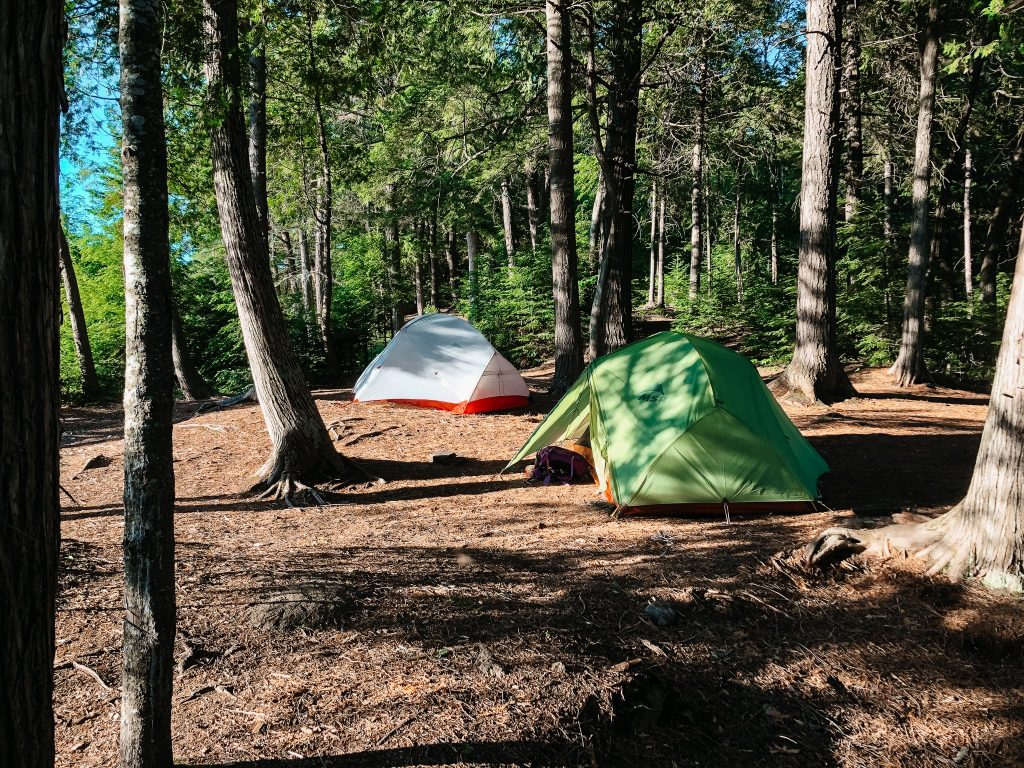
This post may contain affiliate links. If you make a purchase through one of these links, I may receive a small commission at no extra cost to you. Your support is much appreciated! You can learn more by reading my full disclosure .
Camping for Beginners: Introduction
This guide will give you the knowledge and tools on how to camp and enable you to plan your first camping trip. The easiest way to get good at camping is to go with someone more experienced than you. If this is an option, definitely take it! But if you don’t have someone to go with, do not fret. By reading this guide you should have everything you need to get started.
I’ve written this guide with camping experience from Canada, New Zealand and Iceland and I know it’s largely applicable to the US as well. If you are camping in other countries, most of the information should still apply but ensure you do your research.
Note : Camping 101: The Ultimate Guide to Camping for Beginners is specifically designed for tent camping for beginners. This post does not cover RV / trailer camping.
Section 1: The Basics of Camping
In this section, I will go over the basics of camping – specifically, the different types of camping and how you find campsites to begin with.
1.1 Different Types of Camping
There are broadly two ways we can categorize camping. The first is by the proximity to road access / civilization, and the second is by the type of land.
Proximity to Road Access
Front country camping – Also known as ‘car camping’, front country camping is when you drive somewhere and pitch your tent near your car. Front country camping is typically done at campgrounds, and there are often facilities like washrooms, sinks and sometimes laundry and showers.
Backcountry camping – Backcountry camping occurs away from road access, and typically requires some element of human power to access. This could be hiking, kayaking, canoeing, biking, climbing or another activity. Because backcountry camping isn’t accessible by road, you can’t just get in your car and leave if something goes wrong. As a result, backcountry camping is higher risk and requires more experience than front country camping.
Type of Land
Publicly Managed Land – This is camping on land that is publicly managed by the government (i.e. a national/provincial/state parks). Usually, there are camping fees proportional to the number of services provided. If you are at a car camping campground with washrooms and showers, you can expect to pay $20 – 40 per night per site. Meanwhile, backcountry camping sites could range from $0 to $40 per night.
For example, many “non-operating” provincial parks in Ontario do not have fees. Likewise, you can camp in many National Forests for free in the US.
Wild / Freedom / Dispersed Camping – This can be either car or backcountry camping, but it occurs outside national/provincial/state parks and that usually means it is free .
There are some countries that let you camp in any wild space in the public domain. For example, in Canada we often call this Crown Land Camping and it allows Canadian residents to camp on the land for up to 21 days. Many places in the United States allow for free camping too. New Zealand and Iceland allow freedom camping in many areas if you have a self-contained camper van.
Private Campgrounds – These are car campgrounds that are owned privately. Sometimes they’re owned by a family who lives on the property, or it could be a chain, like KOA campgrounds. These campgrounds tend to be $30 – $50 per night and often have better facilities than parks. Some even have swimming pools, activities and free boat rentals.
1.2 Finding Campsites
So with all those types of camping, how will you ever find a campsite? Well, it helps to start with what you want out of your trip. Camping beginners will likely want to start with front country camping ( car camping ) so they can be close to their vehicle and don’t need to carry all their gear themselves.
I’ve found camping beginners also tend to prefer camping in national/state/provincial parks over wild/freedom camping because it’s really easy to find campsites and book reservations. Finding free camping is a bit of an art and takes some practice.
So I recommend Googling parks near where you live and then booking a campsite through their reservation portal.
Note : If you live in Canada and really want to do backcountry camping, head over to Trip Reports where we have compiled detailed guides for tons of beginner canoeing and hiking routes. They have literally all the information you need to plan the trip (maps, reservations, itinerary, tips and more).
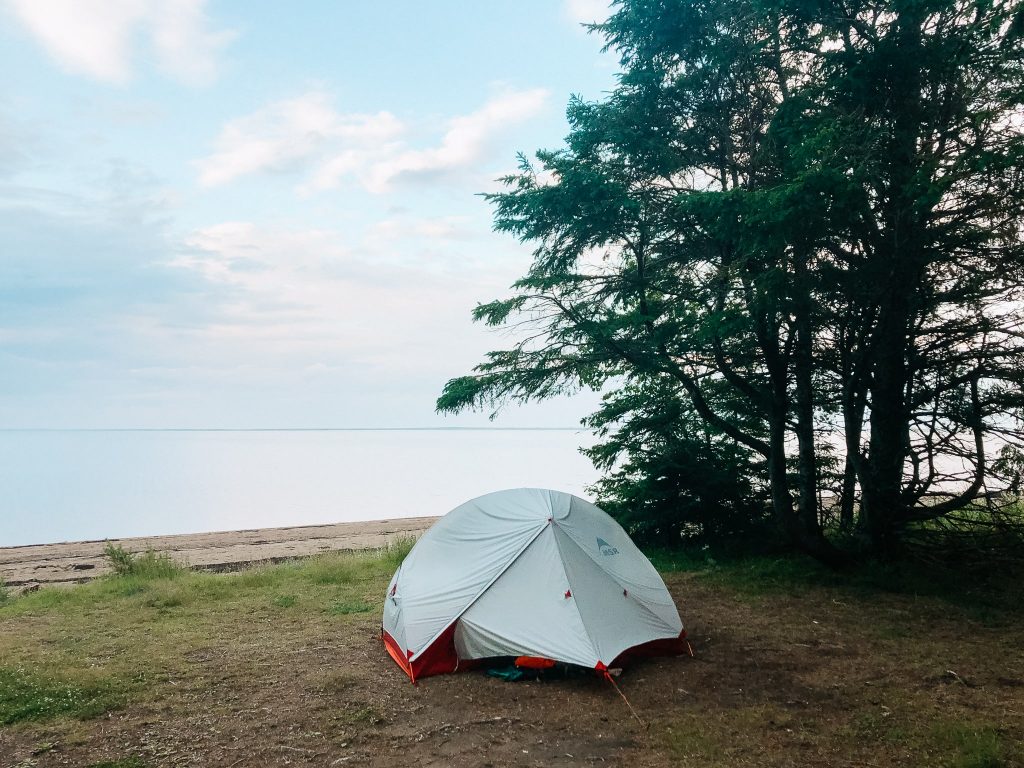
Section 2: Planning & Preparation
2.1 choose a destination & book your sites.
As I stated above, a great starting place is searching for parks in your area. When you’re considering different parks, consider the following:
- How far away is it? Parks further from the city tend to be less busy, but they also involve more driving.
- What facilities are there? Decide what facilities you want and what is available.
- What things are there to do? While camping is itself an activity, search for hiking / paddling / activities in the area.
- How popular is it? I suggest Googling something along the lines of “most popular parks” in your location. There is usually a reason a park is so popular – be it beauty, facilities, proximity. Decide how much solitude you’d like on your camping trip, as popular parks tent to be busier.
Depending on your destination, you will likely need to make a reservation in advance. If this is the case, book your campsite or camping permit.
2.2 Choose a Time to Go
The exact time of year will partly depend on your geography and interests, however, this advice applies to the broad United States / Canada / Western Europe regions. If this will be your first time camping, I highly recommend going in the summer.
Other considerations :
- Climate : Perhaps the biggest driving is climate, specifically temperature and precipitation. Most people go camping when it’s warm out and try to avoid particularly rainy seasons.
- Wildlife : Some people will time their camping trips with when they’re most likely to see wildlife. For instance, many people go camping in the winter or early spring for moose spotting.
- Scenery : Different seasons provide sceneries. Autumn is a popular time to go camping due to fall foliage, but the chillier temperatures mean you need more gear and experience.
Pro Camping Tip for Beginners : In Canada and much of the US, I specifically recommend beginner campers plan their trips for early August. As it’s summer, the weather is warm so you don’t need much gear and there’s little-to-no risk of things like hypothermia. June and July are even warmer but many regions have higher levels of mosquitos and black flies at this time, making for a less than enjoyable time.
2.3 Choose How Long to Make Your Trip
If this will be your first camping trip, I typically recommend going to a campground for two nights. I think planning a camping trip is too much work for a single night; with driving, setting up camp, cooking and cleaning, you just don’t get enough time to actually enjoy the camping trip.
On the other hand, if you will be backpacking or paddling out to you campsite it may make more sense to go for a single night. That way, if you are uncomfortable or need something, you’re relatively close to home. My first backpacking and paddling trips were all single nights. Keep the distance you travel short so you have time to enjoy being at the campsite.
2.4 Prepare Your Route Card
This is something not nearly enough people talk about! Whenever you go out into the wilderness, you should build a route card and leave it with a friend or family member not on the camping trip.
What is a route card?
A route card is a list of where you will be camping each night and when you intend to be back home. For long and remote trips, a route card might have information on the GPS coordinates of campsites and emergency access points, emergency contacts and more. For short trips, a route card is simply where you’ll be camping (i.e. Mew Lake Campground, Algonquin Provincial Park) for which days (i.e. June 12th and June 13th) and when you’ll be home (i.e. June 14th).
You should also leave instructions for what your friend/family should do if you don’t return on time. For example, this could be the phone number of the park office.
Why does this matter?
You leave a route card in case you get lost or injured on your camping trip, or if your car gets a flat tire and you don’t have cell service. That way, someone knows you’re missing and can take steps to get you found.
I’ve always done this for backcountry camping trips, but one time my boyfriend and I were driving to a car camping site and blew a tire on a mountain road without cell service. I hadn’t told anyone where we were, so no one had any idea. Thankfully everything worked out, but since then I always leave a route card with someone.
2.5 Gather Your Tent Camping Essentials
Okay, so you’ve got your first camping trip planned. Now it’s time to gather all the gear you’re going to need. Since there is a long list of things you need to camp, I’ve dedicated all of Section 3 to this topic. There you will find exactly what the tent camping essentials are and how to get them inexpensively if it’s your first time camping.
2.6 Go For a Test Drive
As much help as I can provide over in a beginners camping guide, the best way to learn how to go camping is to go out and do it – in a low risk environment. So before you go out on your first camping trip, try spending the night in your backyard. This will show you a few things:
- Do you know how to use all your gear?
- Is there anything you’re forgetting?
- Are you warm enough?
- Are you comfortable?
Because you’re in your backyard, you can simply go inside and grab something you’ve forgotten. Or, say your sleeping bag is not nearly warm enough, you can move inside for the night. Camping is all about testing and refining what works for you.
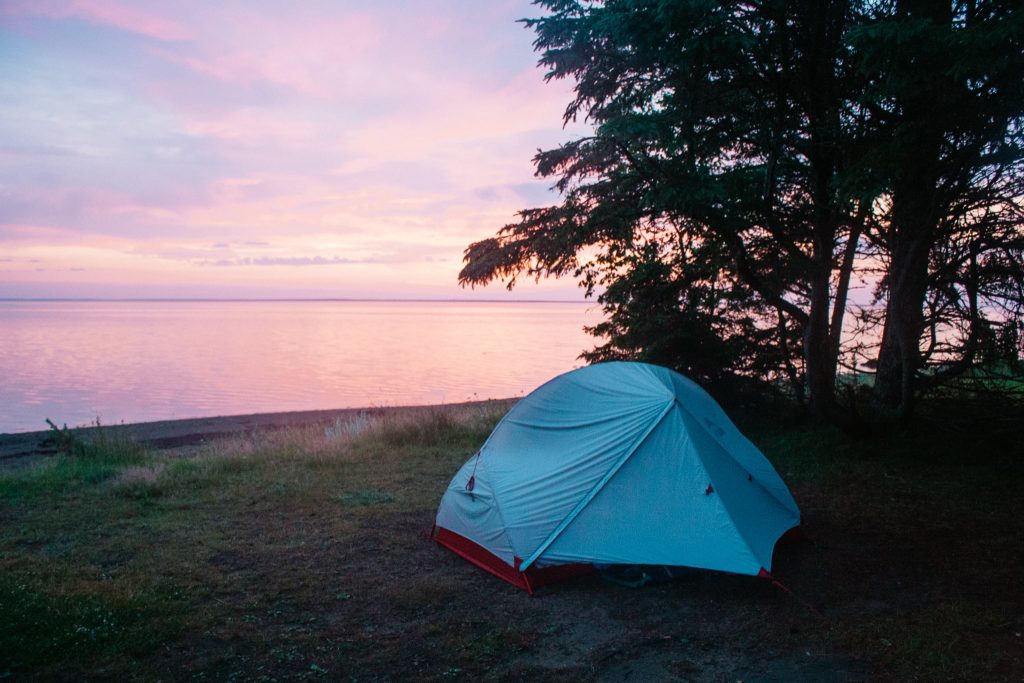
Section 3: Clothing & Gear – Things You Need to Camp
In this section, I’m going to go over the essential things you need to camp. This includes both the gear and clothing you need to stay safe, as well as the gear and clothing you should bring to be comfortable.
3.1 Safety Gear
- First Aid Kit – You should always bring a first aid kit. I have a full post on how to build your own wilderness first aid kit , but the basics are this: pain killers, allergy medication, wound kit (bandages, gauze, polysporin), blister kit (bandaids, moleskin, medical tape).
- Satellite Communication Device – If you will be camping somewhere without cell service, bring some form of satellite communication device. These are pricey and not always feasible for camping beginners. Some places allow you to rent them. If you don’t have one, stay somewhere with cell service. >>This is the one I highly recommend.
- Map & Compass – If you are hiking or paddling to your campsite, ensure you bring a map and compass.
Pro Beginners Camping Tip : Even some drive-in campgrounds don’t have cell service. Download your map and directions to your phone so you can still access them if you lose service.
3.2 Shelter Gear
- Lightweight Tent – If you will be camping at your car, your tent doesn’t need to be lightweight. However, if you are hiking or paddling to your campsite, you want it to pack small and be light to carry. For camping beginners, I typically recommend they choose an inexpensive tent, even if it’s a bit bulky. As you do more camping, though, you’ll want to upgrade. >>This is an affordable backpacking tent I previously used.
- Sleeping Pad – Your sleeping pad adds a layer of air in between you and the ground. They typically pack small and are light to carry, and they can be inflated with your mouth.
- Sleeping Bag – Finding a warm sleeping bag that packs small can be tricky for beginner campers, as they tend to be expensive. If car camping, don’t worry about it being light. If backpacking, try renting a sleeping bag or choose one made from synthetic material, as this tends to be cheaper. >>Here is an inexpensive, but lightweight, sleeping bag.
- Camping Pillow – This is optional, but will improve the comfort. >>I recommend an inflatable pillow to cut down on space.
Note : Many of these items are essential things you need to camp, and are part of the 10 Essentials. If you’re not familiar with the 10 Essentials, read this post .
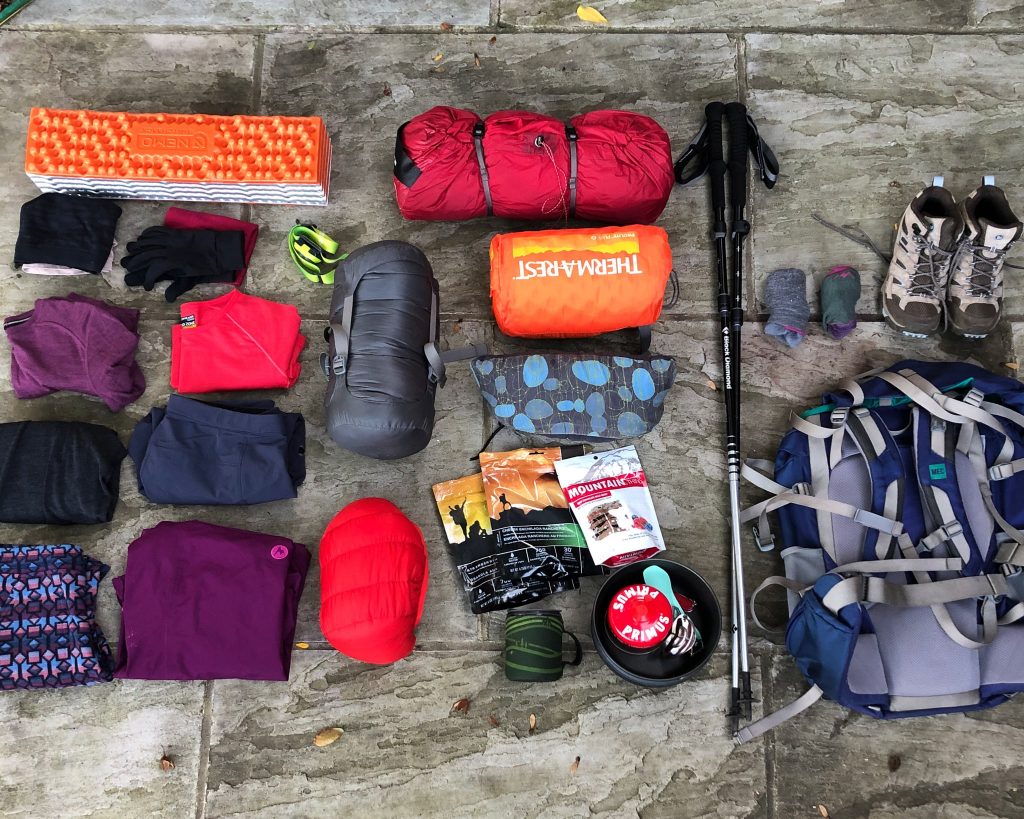
3.3 Cooking Gear + Food
Here are the items you need to cook basic meals on camping trips. Feel free to bring other gear if space allows and get creative with your cooking!
- Water Bottle – Bring a reusable one to cut down on single use plastic!
- Water Purification – Needed if you will be camping somewhere without running water. This could be water filtration tablets, a Sawyer Straw, water pump or similar device.
- Matches / Lighters
- Camping Stove – For car camping, you can use a larger 2-burner stove. For backcountry camping, you can use a backpacking stove.
- Grill – Some fire pits come with a grill, but if you know you want to cook over the fire and don’t know if your fire pit will have one, you can bring a cheap, lightweight grill .
Cooking Gear
- Pots and / or Pans
- Big Spoon / Spatula
- Bowls and Cutlery
- Biodegradable Dish Soap & Sponge – Use this to wash your dishes after eating.
- Garbage Bags – Unless garbage facilities are present, you must pack out everything you pack in. So bring a few garbage bags for waste.
There’s a lot that goes into planning food, so I’ve included a separate section for meal planning in the appendix.
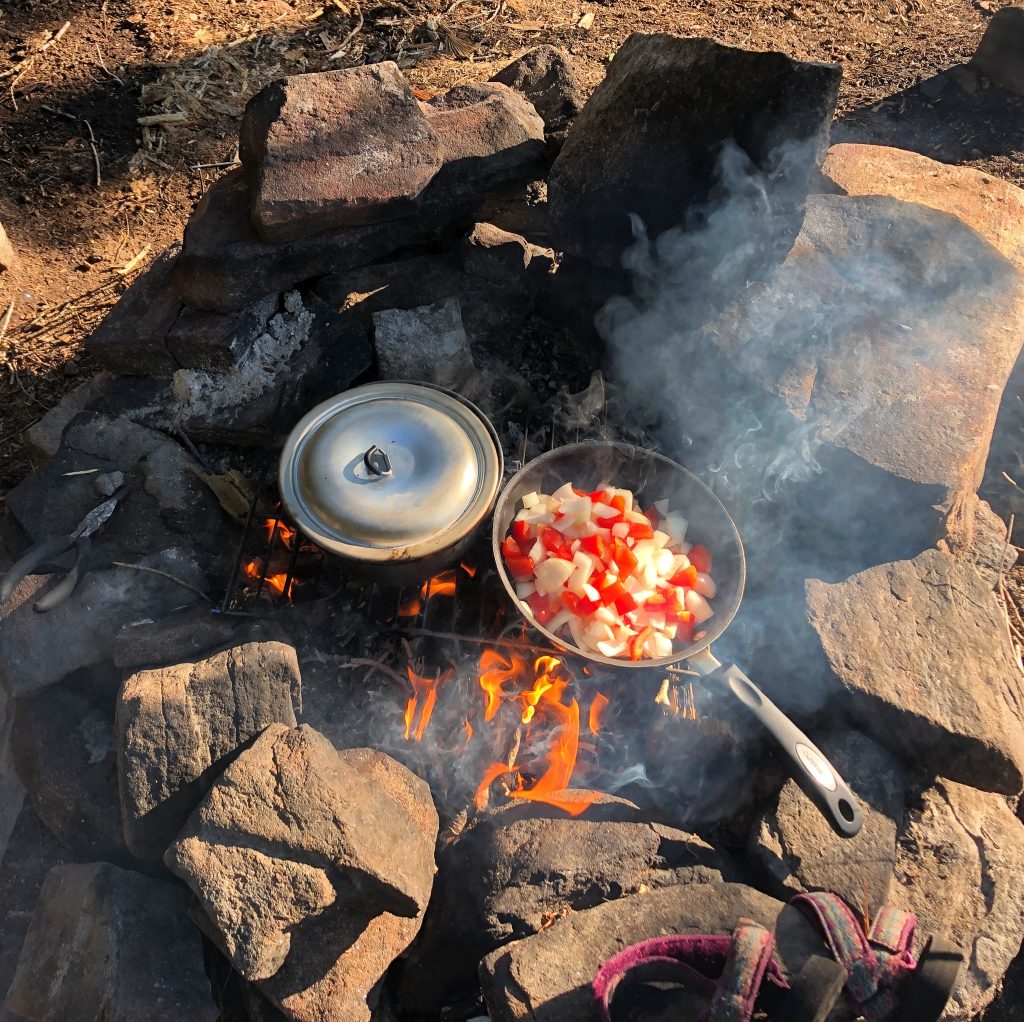
3.4 Clothing
The clothing you wear camping can roughly be categorized into four groups.
Day Clothing – This is the clothing you wear during the day and when you’re on the move. It needs to be durable and comfortable, as you’ll be moving a lot and don’t want anything to rip or tear. In addition, it should be moisture-wicking and weather resistant (so not cotton or denim).
- Durable Hiking T-shirt or Long Sleeve Shirt – Any athletic / gym shirt works when you’re getting starting.
- Durable Hiking Pants or Shorts – Any athletic / gym pants work here too.
- Wool Socks – These will keep your feet warm, even if they get wet. Wool is much better than cotton for socks.
- Underwear / Sports Bra – You know what to do here.
Campsite Clothing – Many people like to change out of sweaty / dirty clothing once they get to the campsite. Campsite clothing should still be durable, but tends to be a little more comfortable and warmer. If you’re going ultra lightweight, you probably won’t bring a second outfit for the evening.
- Comfy Top – This could be a flannel shirt and something made from wool or fleece. Again, we want to avoid cotton.
- Comfy Pants – I like to bring leggings or fleece pants for chilly evenings.
- Sweater or Jacket – Personally, I like to bring both a fleece sweater and a synthetic down jacket. Ideally, avoid bringing cotton.
Sleep Clothing – This is the clothing you wear in your tent, and only in your tent. When you’re getting started, any comfy sleep clothing will technically do. Some people may wear cotton to bed, but I advise against this because if the clothing gets wet it will never dry. Synthetic or wool layers are better for sleeping. And if you’re worried about being cold and have a little money to invest, I highly recommend getting a pair of merino long underwear to sleep in. >>This is what I wear.
Rain Clothing
- Rain Jacket – This is an incredibly important piece of beginner camping gear. Your rain jacket will keep you dry (and warm) even if you have to set up your tent in the rain. You don’t need a fancy Gore-Tex rain jacket when you’re still starting out. My first rain jacket was excellent, lasted for three years and cost less than $80. >>This is the first rain jacket I had.
- Rain Pants – Rain pants are less common, however I really like having rain pants and recommend them for anyone camping in rainy climates. They are loose enough to go over top of hiking pants and are 100% waterproof (unlike hiking pants, which are typically water repellent ).
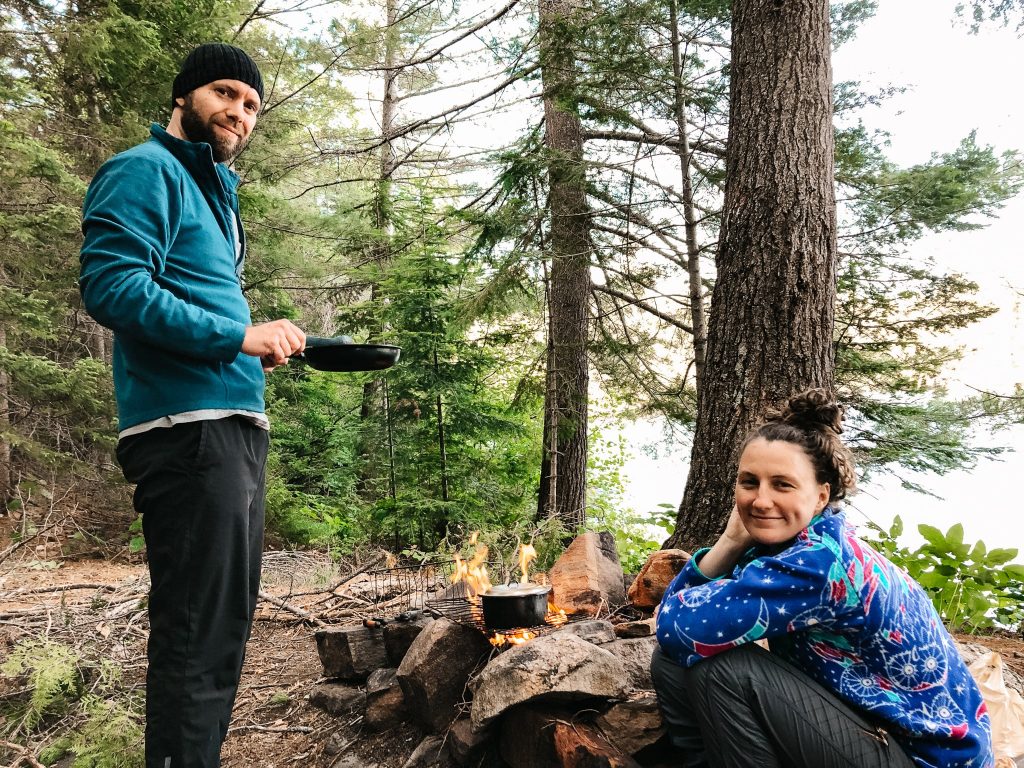
3.5 Footwear
The shoes you bring camping will be somewhat dependent on whether you are driving, hiking or paddling to your campsite. For my first few car camping trips I just wore running shoes.
- Hiking Shoes / Boots – If you will be hiking to your campsite, where a sturdy pair of hiking shoes or hiking boots. Most hiking shoes tend to be waterproof, or at least water resistant, so you’ll still be comfortable if it rains. I recommend the hiking boots as excellent beginner hiking boots.
- Sandals – Whenever I’m at the campsite, I like to wear sandals with wool socks. Especially if I’ve had to hike to my campsite, my feet just want to breathe! So in addition to your sturdy hiking shoes, bring a comfortable pair of shoes for around the campfire.
Read More : 10 Best Women’s Hiking Boots (2021) + Guide to Buying Beginner Hiking Boots
3.6 Miscellaneous
- Backpack – If you are hiking or paddling to your campsite, you’ll need something to put everything. Backpacking backpacks can be expensive, so see if you can rent or borrow one for your trip.
- Dry sacks / Ziploc bags – I like to bring some small dry sacks and zip lock bags to store items. This keeps them dry no matter what.
- Biodegradable Toothpaste – Many car campgrounds have washroom and sink facilities, but if you are hiking/paddling to your campsite you will need to spit your toothpaste into the bush. Please use biodegradable toothpaste.
- Sunscreen – Gotta be sun safe!
- Bug Spray / Bug Hat – This is perhaps one of my most important first time camping tips. Bring a bug hat. Nothing ruins a camping trip more than mosquitos and black flies. A bug hat will keep you sane.
Optional Personal Items
- Books, journal, pen
- Camping Chair
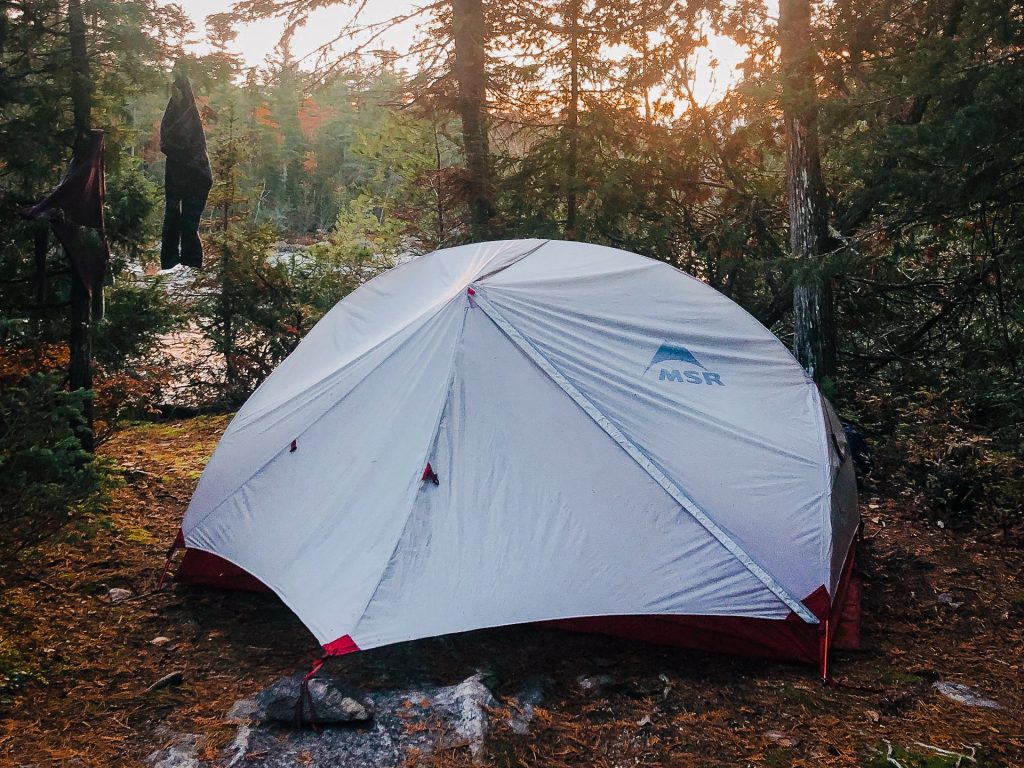
Section 4: Camping Tips for Beginners
This section is about how to camp – that is, how to actually execute a camping trip! There’s only so much I can explore though. The only way to really learn how to go camping is to get out and do it!
4.1 Getting to Your Campsite
Depending on the campground you’re at, you may need to check in with a park office or visitor’s centre to collect your permits / reservations. Many parks are moving away from this and allowing campers to download an electronic version of the permit when they make the reservation. Check what you need for your destination.
4.2 Pitching Your Tent
A integral part of learning how to tent camp is knowing how to set up your tent in the first place! Hopefully you did a test drive and already know how to set up your tent, however I always find the first few set-ups with a new tent take some time (and patience).
When choosing where to pitch your tent, choose relatively flat ground. You don’t want to be sliding in your tent or sleeping on an angle. If there is a slight angle, ensure your head is on the slightly higher ground.
I always recommend pegging out your tent. Once I hadn’t pegged by tent, went on a hike and came back and my tent was a 100 m away and upside down (and had a broken pole). I had no idea a huge wind storm would happen!
Be mindful of where you put the doors. For example, you probably don’t want to put the doors right next to a tree / bush (that could get annoying) or where people watching by could see into your tent.

4.3 Setting Up Your Sleeping Area
Once the tent is set up, I like to set up my sleeping area. I first inflate my sleeping pad, then unpack my sleeping bag and place it on top. Next, I set up my pillow and place my pyjamas on top of my sleeping bag. I also like to take out anything I might need over the night (i.e. toiletry bag, book, journal, headphones).
I do this so that I can keep my backpack / bags outside the tent. If they’ve touched the ground, they may have dirt on them and I don’t want this inside my tent. You can either leave your bags under the tent vestibule (this is the area right outside the door that is covered by the tent fly) or in your car.
Tip : Don’t leave any food in your tent!
4.4 Staying Dry and Warm
Hopefully, you get wonderful weather for your first time camping, but if it is chilly or raining there are a few things you can do to stay warm and dry. First, ensure you aren’t wearing any cotton and put on your rain jacket. Keep all your gear either in the tent, under the vestibule or in the car.
Tip: Bring a tarp and some rope to build a cooking shelter. There are tons of Youtube videos showing how to set up an easy tarp. This gives you a dry place to cook and hang out.
4.5 Lighting Fires
Before you leave for your first camping trip, watch a few Youtube videos on fire building. It’s pretty easy, but it helps to have a demonstration. It helps to bring some newspaper to help the larger pieces of wood to catch. I also sometimes from fire starter.
Remember, campfires should only be built in designated fire pits. If there isn’t a fire pit, use a stove instead.
A Note on Firewood : Check the firewood rules for where you’ll be camping, and double-check if there is a fire ban. Invasive species can live in firewood, so many parks forbid people from bringing their own firewood and thus campgrounds often require you to buy firewood there. If you’re not at a campground, you can usually collect dead branches from the area.
4.6 Cooking Over a Fire or Stove
Cooking over a stove.
I have a TON of beginner camping tips specifically targeted at camp cooking. So many that I actually have a cookbook (shameless plug).
If you’re car camping, cooking on trip is really similar to cooking at home. You can bring a 2-burner camping stove that functions very similarly to a gas stove at home. The only difference is that you need to connect the fuel to the camping stove yourself.
If you’re backcountry camping, you will likely want to bring a much smaller stove. With backpacking stoves, there is an attachment that sits on top or beside the fuel canister. Similar to the above, you open up the flue valve a little and light it with a match or lighter. Now you have heat! >>I recommend this backpacking stove.
Once you have your heat source, you are ready to cook your food. There are tons and tons of camping recipes on various blogs and YouTube channels that you can experiment with. Though I recommend choosing something simple for your first time camping.
Cooking Over a Fire
If you want to cook over a fire instead of a stove, will need a grill. If you’re camping at a campground, there may be a grill built into the fire pit. If you’re backcountry camping, you will likely need to bring your own grill. >>Here is an option for a cheap, lightweight grill .
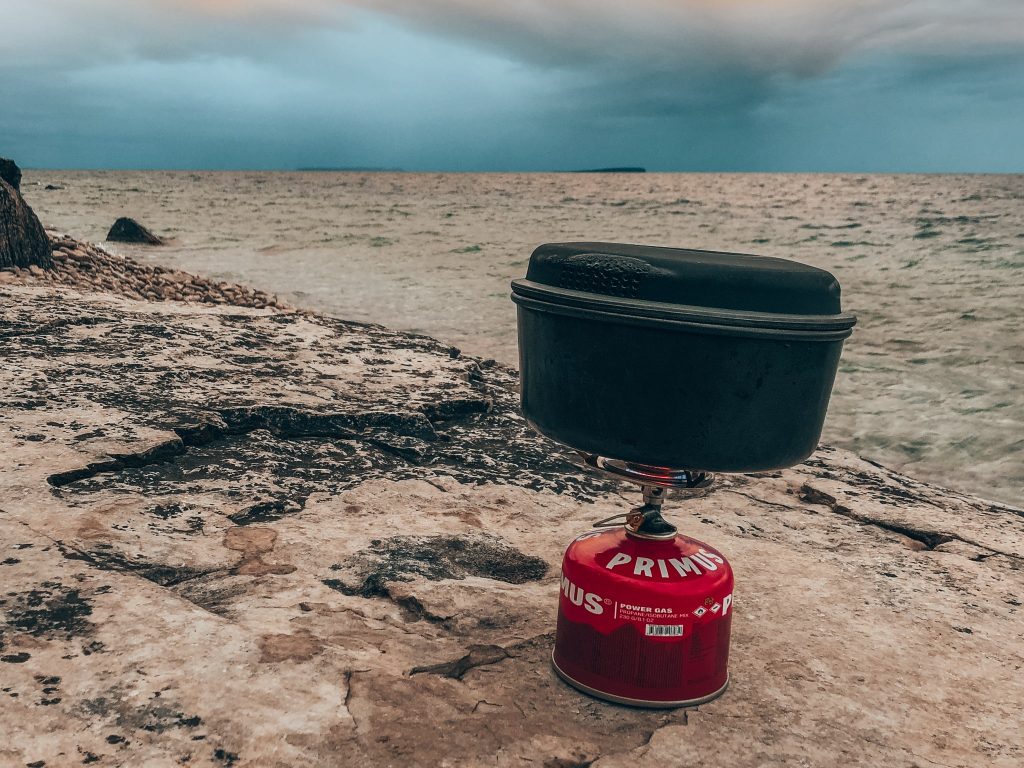
4.7 Camping Etiquette
Camping etiquette is so important! Here are a few things you can do to ensure you’re respecting other campers:
- Don’t play loud music and be quiet after ~10 pm
- Don’t walk through others’ campsites
- Be mindful taking a photos if you’re near someone else’s campsite
- Keep dogs on a lease unless you are in an off-lease area
- Clean up after yourself, your group and your pets
I’m working on a full guide to camping etiquette, so stay tuned for more tips!
4.8 Leave No Trace Camping
It’s so important that we respect the environment and wildlife when we are camping. This means ‘leaving no trace’ – ensuring you leave the site as you found it (or leave it better than you found it). There is a lot to cover here, so I recommend reading my post on Eco Camping: Your Guide to Environmentally Sustainable Camping .
But here are the highlights :
- Don’t alter your campsite at all : Do not build new fire pits, tear down branches, making tent clearings
- Pack out everything you pack in : Bring a garbage bag or use the provided garbage facilities. Absolutely no trash should be left at the campsite (and this includes in the fire pit). Be especially mindful of plastic wrappers and food packaging.
- Correctly dispose of grey water and human waste : Check what the specific requirements are for the place you will be camping and follow them.
- Use all natural, non-toxic products : Wear all natural sunscreen and use all natural toothpaste (I like Tom’s ).

Camping for Beginners: Conclusion
I really hope you’ve found this guide helpful and have the confidence to take your first camping trip! If you have any questions on how to camp, please leave a comment or send me a message.
Camping 101: Meet Your ‘Instructor’
I thought it’d be helpful to introduce myself. My name is Mikaela and I used to work as a wilderness guide throughout Canada. My first long camping trip was a two-week canoe trip in 2010, and since then I’ve spent hundreds of nights in the wilderness.
And through guiding, I’ve spent a lot of time teaching kids and adults how to camp, so I’m acutely aware of the questions and challenges that come with camping for the first time. I am sure this beginner’s camping guide will give you the knowledge and resources to go on your first camping trip!
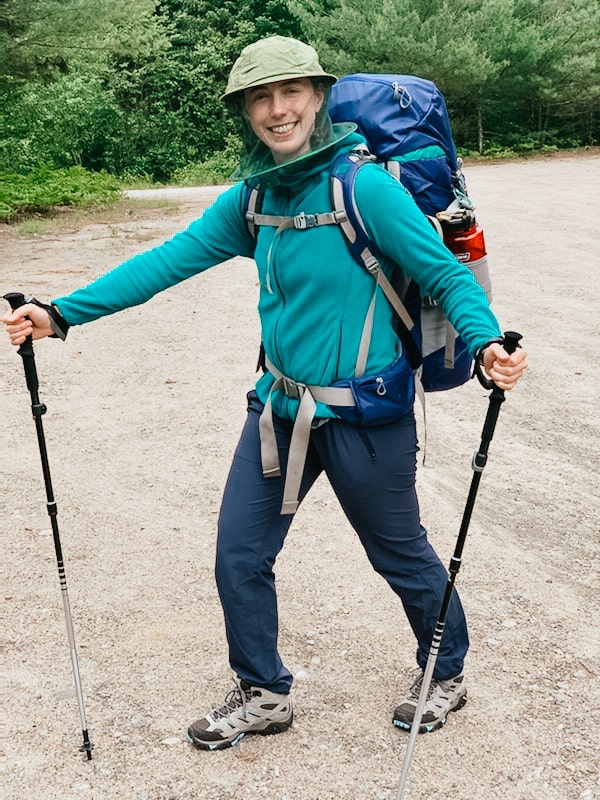
Mikaela | Voyageur Tripper
Mikaela has been canoeing, hiking and camping for over ten years. She previously worked as a canoeing guide in Canada, and spent a season guiding hiking and kayaking tours in the high Arctic. Mikaela is a Wilderness First Responder and Whitewater Rescue Technician.
MY FAVOURITE GEAR
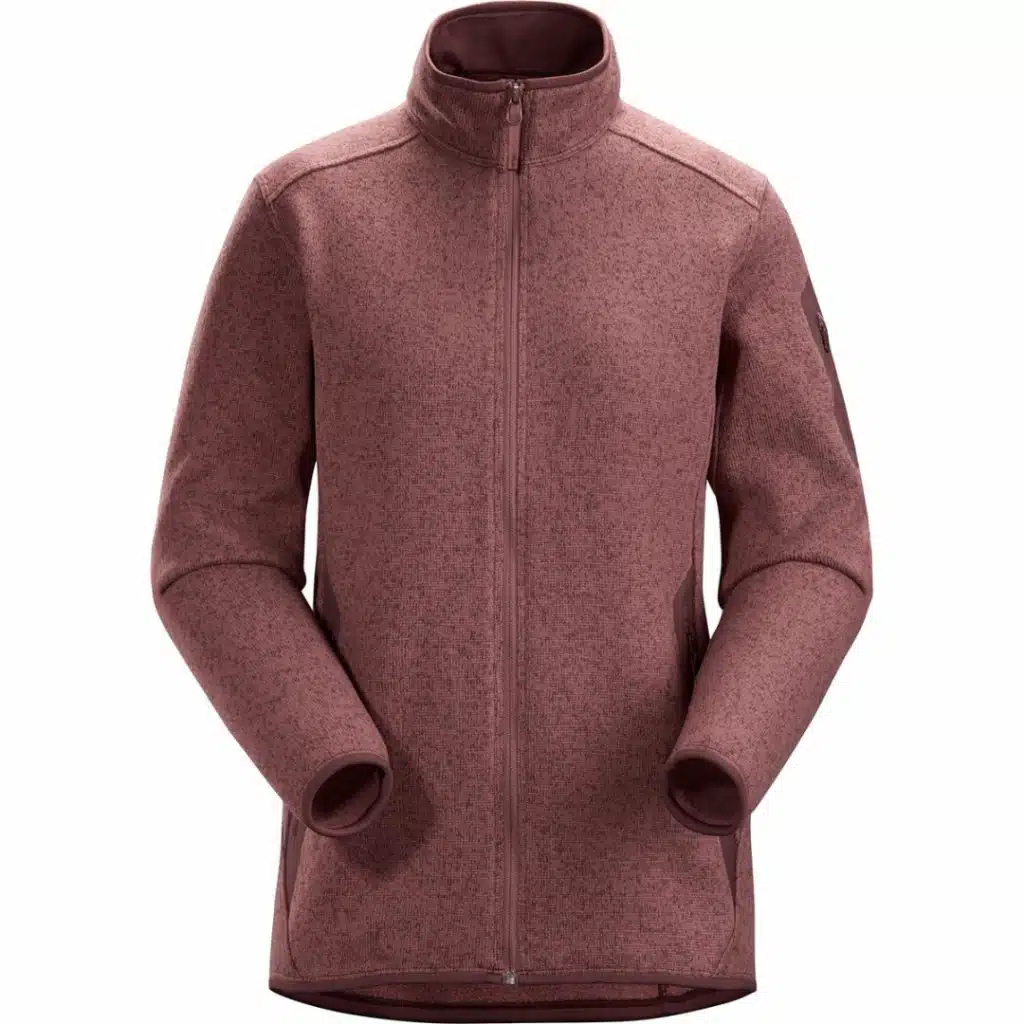
Fleece Sweater
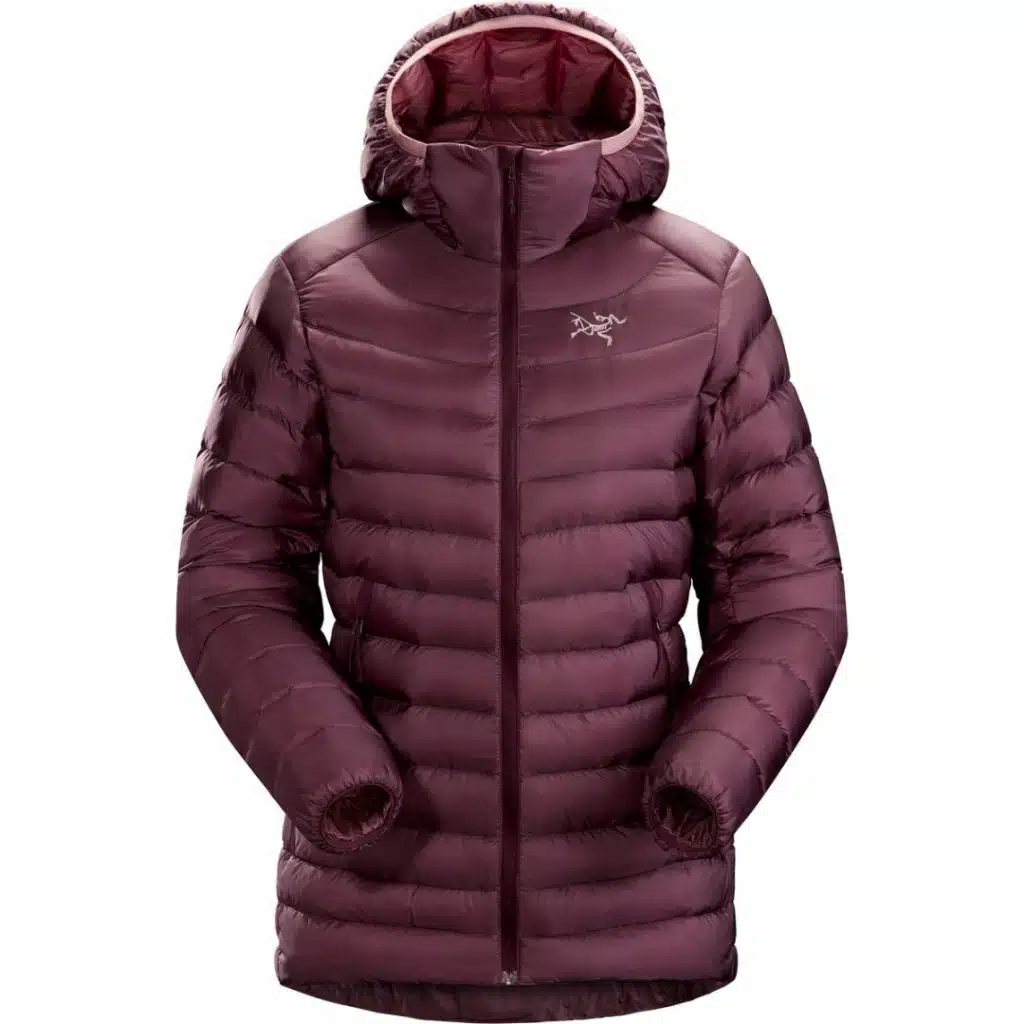
Down Jacket
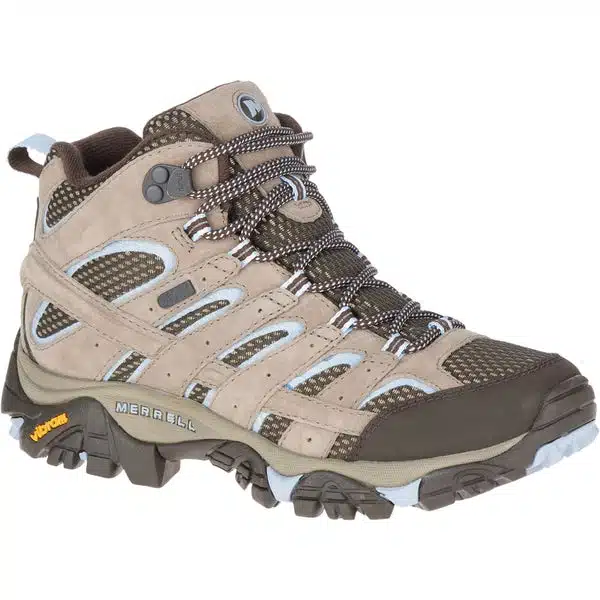
Hiking Boots
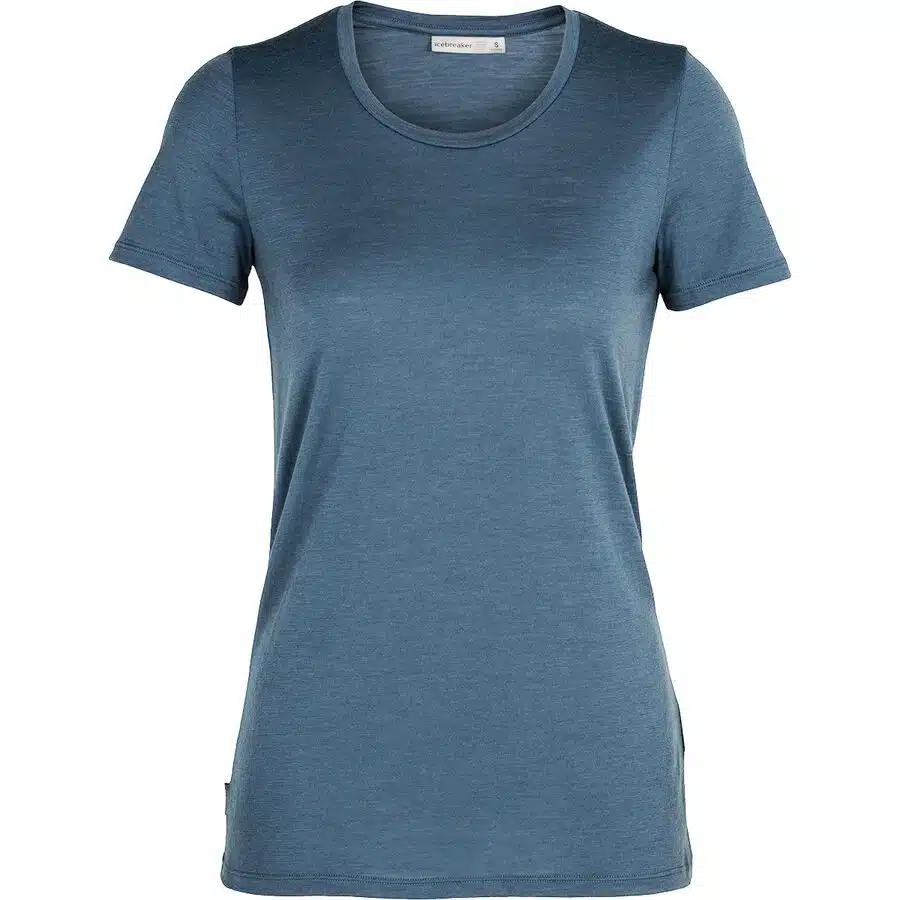
Hiking Shirt
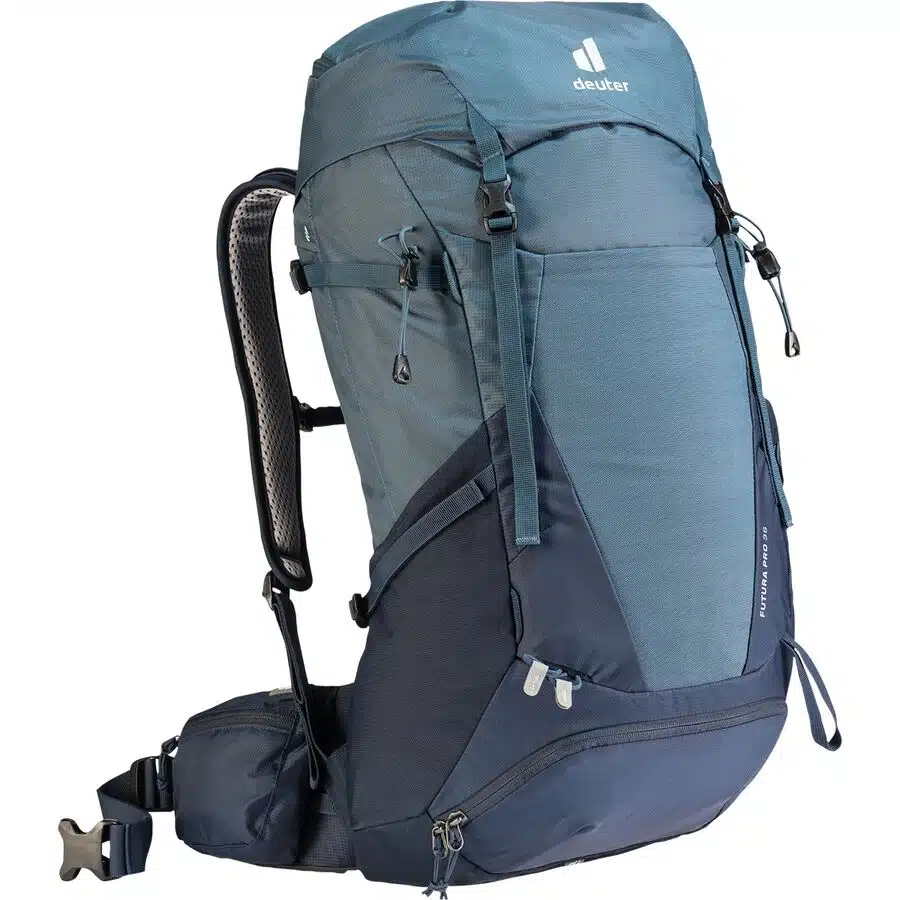
Hiking Pants
5 thoughts on “ Camping 101: The Ultimate Guide to Camping for Beginners ”
Stay in touch.
Join our community of outdoor adventurers - you'll find trip inspiration, gear discussions, route recommendations, new friends and more!
Hi your blog is very helpful! I am Rhene from the Philippines, and I’m also a teacher who promotes Outdoor Adventure in the Philippines. I hope I can invite you to talk in our forum/conference to share your expertise and experiences in the outdoors.
Thank you for explaining that you shouldn’t wear cotton if the weather is chilly or raining. I’ve been trying to get some advice for our camping trip that we’re taking next week. I’ll be sure to remember this advice in case the weather is cold.
You’re welcome, Olivia! Glad I could help!
I found it helpful when you recommended that we go for two nights for our first camping trip since a lot of work is needed in planning a camping trip even for just one night. It’s my first time going camping with friends since we just got an RV rental booked, so we’ve been looking for campsites to consider. I’ll be sure to take note of this suggestion while I check out RV resorts we might consider for our trip.
Two nights also works – though I prefer one for beginners just in case they have a really bad sleeping experience. Have a great time on the RV trip, Anna!
Leave a Reply Cancel reply
Your email address will not be published. Required fields are marked *
Save my name, email, and website in this browser for the next time I comment.
- Facebook Group

What Does Camping Mean?: A Comprehensive Guide for New Campers
By Ryan Wilson

If you’re new to camping, you may wonder “What does camping mean?” Camping is an outdoor activity where you temporarily live and sleep outside, typically in a tent, recreational vehicle ( RV ), or under the stars. It’s a way to connect with nature, escape from your everyday routine, and spend quality time with friends or family.
The term camping encompasses a wide range of approaches to outdoor accommodation, from minimalistic camping to more comfortable glamping .
If you’re new to camping, understanding common terminology and various camping styles will help you get started in the activity. This will help you plan and prepare better for your outdoor adventures.
No matter your experience level or preference, camping offers a unique opportunity to explore the great outdoors, make lasting memories, and enjoy a sense of adventure. With the right preparation and a positive attitude, you can make the most of your camping experience and develop a deeper appreciation for the natural world.
In the post below, I’ll help you to answer for yourself “What does camping mean.” I’ll also provide you with an overview of different forms of camping, what you need to go camping, and what sorts of activities people usually participate in while camping.
What Does Camping Mean

Camping is the act of living outdoors temporarily for recreational purposes, often involving activities like hiking, fishing, and cooking over an open fire. It can mean different things to different people, ranging from roughing it in a tent without electricity, to roaming in an RV , or even enjoying the comforts of a lakeside cabin.
Camping as a form of outdoor recreation has a rich history that dates back to at least the 1800s when people began escaping to the wilderness as a way to reconnect with nature and escape the stresses of urban life.
The idea of spending time outdoors for leisure grew in popularity, leading to the establishment of local, state, and national parks with designated camping areas to accommodate this growing enthusiasm. Nowadays, camping is a popular pastime for families, friends, and individuals who seek adventure, tranquility, or a chance to unplug from the digital world.
When planning your next camping trip, it is important to consider the type of camping experience you want. For the more adventurous, backpacking offers a sense of solitude and self-reliance. If you prefer a less challenging trip, car camping, where your vehicle is parked close to your campsite, provides easier access to amenities, such as restrooms or showers, if available.
While some campgrounds offer campsites with minimal amenities, such as a picnic table, and fire ring or grill, others cater to those who prefer more luxurious accommodations like glamping , where the campsite may include a fully-furnished tent, comfortable bed, and electricity for charging devices.
Types of Camping

What is Tent Camping
Tent camping is a classic form of camping where you set up a temporary shelter (tent) at a campsite. You get to enjoy nature, campfires, and outdoor activities.
The advantages of tent camping include affordability, flexibility in choosing locations, and a more authentic camping experience. Some disadvantages are potential exposure to bad weather, limited amenities, and the need for additional camping gear.
Tent camping can occur near your vehicle or camping amenities (e.g., pit toilets ) or in areas far from other people and create comforts.
What is Car Camping

In car camping, you use your vehicle as a base for your outdoor activities, sleeping either inside your vehicle or in a tent near your car. This type of camping provides easy access to camping gear stored in your car, reduces the need to carry heavy packs, and offers additional security.
What is RV Camping

RV camping involves using a recreational vehicle as your shelter while exploring the outdoors. RV s allow for more comfortable accommodations and access to amenities like electricity, water, and a kitchen. However, RV camping can be more expensive than other types and requires finding designated RV campgrounds or suitable boondocking locations. Additionally, maneuvering and parking larger RV s can be challenging.
There are are a number of online options for renting RVs to test out if they are a good fit for your camping style. With the range of options available, there is usually something that fits everyone’s needs.
What is Backpacking

Backpacking is a form of camping where you hike to remote backcountry locations carrying all your shelter, gear, and food in a backpack.
This type of camping allows you to experience secluded natural settings away from crowded campgrounds. You’ll need to plan carefully for backpacking trips, as you must carry all essentials and be prepared for unexpected situations.
Backpacking takes an additional level of skill and knowledge that car or RV camping does not. Make sure you go with someone experienced at backpacking before you venture out on your own for the first time.
What is Glamping

Glamping , or glamorous camping, is a luxurious version of camping that offers more comfortable shelter options such as cabins, yurts, or upscale tents. Glamping combines the excitement of outdoor activities with the comforts of modern living.
While this type of camping is more comfortable and convenient, it’s also more expensive and may not offer the same connection with nature that other methods provide.
What is Dispersed Camping

Dispersed camping (also known as boondocking) is a type of camping where you set up a campsite without designated facilities, usually on public lands like national forests.
Dispersed camping allows you to experience untouched nature and solitude, but it requires a strong sense of self-reliance, as you’ll need to provide your own water , sanitation, and trash management. It’s essential to practice Leave No Trace principles to preserve the environment.
What is Stealth Camping

Stealth camping involves setting up a low-profile, temporary shelter in a location without being noticed, usually to avoid paying fees or to camp in unauthorized areas. This type of camping requires discretion and expert knowledge of the area. The benefits include solitude and low or no cost, but there are drawbacks, such as the risk of fines or expulsion if discovered and potential impact on the environment if proper care isn’t taken.
The Difference Between ‘Going Camping’ and ‘Going to Camp’

When you go camping , you typically venture into the wilderness, a semi-wilderness area, or campground for a short period of time, either alone or with others. Your accommodations may include sleeping under the stars or in a tent, and you may cook your meals over a fire. This type of camping allows you to immerse yourself in nature and enjoy a more rustic experience.
On the other hand, when you go to camp , you usually stay at a facility built within a wilderness area. These facilities often include cabins, a cafeteria, sports amenities, and a body of water such as a pond or a lake for recreational activities like canoeing or swimming.
Going to camp is usually said in relation to a “summer camp” where kids go for a week or two to experience different outdoor activities. In this type of setting, you have more comforts and conveniences available to you compared to traditional camping. There may even be a theme associated with the camp where people (primarily kids) are taught a certain set of skills.
What Do You Need to Go Camping

Preparing for a camping trip can be a little stressful in deciding what do you need to go camping. While there is a lot of gear you can take, some is just based on personal preference, while others are essential gear you’ll need to ensure a comfortable and safe outdoor experience. Regardless of whether you’re a tent camper or an RV er, there are a few essential items that should be on your packing list:
- Tent or shelter : Your home away from home, a tent provides shelter and protection from the elements. Make sure to choose one that’s appropriate for the location and weather conditions you’ll experience.
- Sleeping bag : A good-quality sleeping bag is vital, as it will keep you warm and cozy on chilly nights. Consider a mummy bag for better insulation in colder temperatures.
- Sleeping pad : To ensure a comfortable night’s sleep, a sleeping pad prevents you from directly lying on the cold, hard ground. Check out our review of the LOSTHORIZON sleeping pad .
- Camp stove : A portable stove is necessary for cooking meals and boiling water. Bring fuel and a lighter or matches as well.
- Cooking Gear : You’ll need some cooking pots, pans, and utensils to cook your food while camping. Depending on what type of camping or cooking you’re planning to do, you may or may not need specialized pots and pans. I like using a set that has cooking gear and plates and bowls to eat from.
- Cooler : Store perishable food and drinks in a cooler to keep them fresh. Don’t forget to pack ice packs or ice to maintain the temperature.
- Headlamp : Light up your campsite and navigate your surroundings more easily after dark with a reliable light source.
- First aid kit : Be prepared for any potential accidents or injuries with a well-stocked first aid kit. Check out some of my first aid recommendations .
- Water filter : If you’ll be camping somewhere without a supply of drinkable water (also known as potable), then you’ll need a way to treat your water so that it’s safe to drink.
- Water container : For most camping trips, you’ll water a water container to both bring water with you, and also to get additional water at the campground. Check out my post on the best water containers for camping .
For specific types of camping, additional gear may be nice to have or neccessary:
- Portable toilet (for car or RV camping): A portable toilet can be very useful, especially if the campground doesn’t have adequate facilities. Check out my review of Thetford Porta Potti 365 . I love it for camping with my family!
- Bear canister (for backpacking): When venturing into the wilderness, you may need to store your food and scented items in a bear-resistant container to keep both you and the bears safe.
This is not a comprehensive list of gear you’ll need when camping, but highlights some of the most important pieces. Take at look at REI’s essential camping gear list . Before buying all this gear, try going camping with a friend that is an experienced camper and likely has a lot of the gear you’ll need already. Additionally, a lot of camping stores offer rentals of key pieces of gear such as sleeping bags and tents.
What to Do When Camping

When you plan a camping trip, a variety of fun activities await you. A lot of people wonder what to do when camping. I can assure you, there is a lot to do! Among them, hiking offers excellent opportunities for exploring the great outdoors . It’s an enjoyable way to immerse yourself in the beauty of nature and discover scenic views.
If you prefer water-based activities, consider fishing or swimming in nearby lakes or rivers. These activities allow you to relax while enjoying the refreshing water. Additionally, you can experience the tranquility of water by kayaking or canoeing. Paddling through calm or challenging waters connects you with your surroundings and enhances your camping experience.
One of my favorite camping activities is wildlife viewing (but then again I’m a wildlife biologist for work). Keep an eye out for unique birds, mammals, and other creatures as they go about their lives. Just remember to observe from a safe distance and avoid disturbing the animals in their natural habitat.
In the evening, treasure the stunning night sky by stargazing. Far from the city lights, camping sites often allow for clearer views of the twinkling stars, constellations, and other celestial bodies.
Relax and unwind at your campsite with a warm, tranquil campfire. A warm fire creates an inviting atmosphere for stories, laughter, and friendly conversations. And who doesn’t love roasting marshmallows over a campfire.
You may also find joy in recreational activities such as reading, playing cards, board games, or tossing a Frisbee.
Camping isn’t just limited to overnight stays; you can also enjoy picnicking in the great outdoors. Pack your favorite snacks and visit a nearby meadow or forest clearing to savor a meal surrounded by nature.
How Much Does Camping Cost

Camping costs can vary significantly depending on several factors like the type of campsite, time of year, and location. You’ll be considering a range of options, from tent sites to RV parks, or even cabins and glamping experiences.
Tent sites usually cost between $10 and $30 per night and can be found in national parks, state parks, or private campgrounds. These sites often provide basic facilities like restrooms, showers, and picnic tables.
RV sites typically range from $30 to $50 per night. At these sites, you’ll usually find amenities like electricity, water hookups, and dump stations. RV campgrounds may also offer additional facilities, such as laundry rooms and camp stores.
While cabins are a more comfortable camping option, they come with a higher price tag. Cabins can be found in both national parks and state parks, and prices can vary widely depending on location, size, and amenities.
Glamping experiences, such as yurts, treehouses, or luxury canvas tents, provide a unique and upscale outdoor experience. These options require a larger budget, with prices ranging from $100 to $500 per night.
Campground fees vary based on the location, facilities, and time of year. While developed camping areas with more amenities are likely to charge higher fees, there are also low-cost or free camping sites available in nature, especially within designated Wilderness areas and Bureau of Land Management (BLM) lands.
In general, expect to pay higher fees during peak seasons like summer and holidays, as well as in popular national parks or state parks. Keep in mind that reservations may be required for some destinations, so plan accordingly.
Lastly, don’t forget to budget for camping gear and equipment costs. There is no firm answer for ” how much does camping cost” because it depends a lot of what gear you already have, what gear you can borrow, and what you’ll need to buy or rent.
This may involve investing in a quality tent, sleeping bag, cooking equipment, and other necessary items. Gear investment can be a one-time cost, with the possibility of lasting for multiple camping trips.
Many local outdoors stores offer camping gear rentals, so you don’t have to shell out a lot of money for a hobby you might not even enjoy! And check with friends to see if you can borrow some of their camping gear. I’m always happy to share mine with friends.
Camping is one of my favorite activities to enjoy the outdoors with my friends and family. It’s a great way to relax and unwind away from the everyday stresses of life.
There are a variety of types of camping to fit almost everyone’s needs. Some people might scoff at glamping or other forms of camping saying that they’re not “real camping.” But that’s simply not true. Camping is all about enjoying the outdoors, so whatever version of camping helps you to do that is great!
You really just need to consider “What does camping mean to you” and then go from there.
Camping is definitely worth trying at least once in your life to see if you like it. It’s certainly not for everyone, so don’t worry if you decide it’s not a great fit for you.
If you’re interested in trying camping for the first time, check out some of the National Park campgrounds . And take a look at some of my gear reviews to help outfit your next trip.
© The Camper Advisor
What is Camping: Everything You Should Know
- Post author: Barry
- Post last modified: August 30, 2023
- Post category: Knowledge Base
- Reading time: 20 mins read
Have you ever felt the urge to escape the hustle and bustle of the city and spend some time in the great outdoors? If so, then camping might just be the perfect activity for you.
Camping is a popular pastime for people of all ages and backgrounds. It offers a chance to disconnect from technology, breathe in the fresh air, and immerse oneself in nature. In this article, we’ll explore everything you need to know about camping, from the different types of camping to the essential gear you’ll need to bring along.
Whether you’re a seasoned camper or a first-timer, our goal is to provide you with a comprehensive guide to make your next camping trip an enjoyable and memorable experience.
So let’s get started!
Table of Contents
What is Camping: Everything You Need to Know
What is camping.

Camping is an outdoor recreational activity that involves spending time in nature, usually in a tent or camper. It’s a chance to disconnect from technology and immerse oneself in the beauty of the natural world.
Whether it’s hiking through forests, swimming in lakes, or roasting marshmallows around a campfire, camping offers endless opportunities for adventure and relaxation.
For many people, camping is not only a way to escape the hustle and bustle of daily life but also an opportunity to bond with family and friends.
Sharing meals, playing games, and telling stories under the stars brings people closer together and creates lasting memories. But camping can also be enjoyed solo as a chance for self-reflection and solitude.
One of the best things about camping is its flexibility – there are options for every interest and level of experience.
Types of Camping
A. tent camping.
When it comes to camping, there are many different ways to enjoy the great outdoors. Here are some of the most popular types of camping: Tent camping is perhaps the most traditional form of camping. All you need is a good-quality tent, sleeping bags, and some basic camping gear, and you’re ready to go.
B. RV camping

RV camping is a great option for those who prefer the comforts of home while camping. With an RV, you can travel in style and have all the amenities you need, such as a kitchen, bathroom, and comfortable sleeping arrangements.
C. Car camping
Car camping is similar to RV camping, but with a smaller vehicle. This type of camping is great for those who want to travel light but still have some of the comforts of home, such as a comfortable sleeping pad and a portable stove.
D. Backpacking
Backpacking is a more adventurous type of camping. With only a backpack, you can hike deep into the wilderness and experience nature at its finest. This type of camping requires more planning and preparation, but it can be a truly rewarding experience.
Related: Is Seasonal Camping Worth It?
Essential Gear for Camping

A good quality tent is essential for providing shelter and protection from the elements while camping. When choosing a tent, consider factors such as size, weight, and durability. Look for a tent that can withstand wind, rain, and other inclement weather conditions. Sleeping bag
A sleeping bag is designed to keep you warm and comfortable while sleeping outdoors. When choosing a sleeping bag, consider factors such as temperature rating, size, and weight. Look for a bag that is suitable for the climate and conditions you’ll be camping in.
Sleeping pad or mattress

These items provide cushioning and insulation from the ground, making sleeping more comfortable. A good sleeping pad or air mattress will help prevent heat loss and provide a barrier between you and the cold ground.
Camping stove and fuel
A camping stove allows you to cook meals and boil water while camping. When choosing a camping stove, consider factors such as size, weight, and fuel efficiency. Look for a stove that is easy to use and can handle the cooking needs of your group.
Cookware and utensils
Essential for cooking and eating meals while camping. When choosing cookware and utensils, consider factors such as durability, weight, and ease of use. Look for items that are lightweight and can be easily packed.

Cooler or ice chest

Used to keep food and drinks cold and fresh during your trip. When choosing a cooler or ice chest, consider factors such as size, weight, and insulation. Look for a cooler that is large enough to hold all your food and drinks, but not so large that it’s difficult to transport.
Food and snacks
High-energy snacks and meals are essential to fuel your body during your hike. When choosing food and snacks, consider factors such as nutritional value, weight, and ease of preparation. Look for items that are lightweight and easy to pack, but still provide the energy you need to keep going.
Water bottles or hydration system
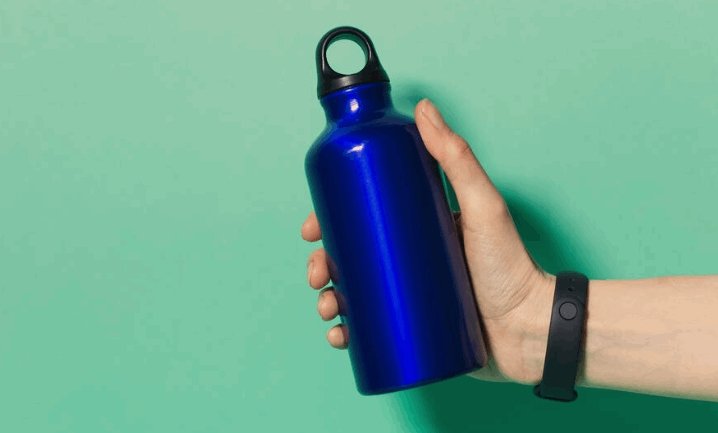
Keeping hydrated is crucial during outdoor activities, and having a reliable source of water is important. When choosing a water bottle or hydration system, consider factors such as capacity, weight, and ease of use. Look for a system that can hold enough water for your needs and is easy to refill.
Headlamp or flashlight
These items are essential for navigating in the dark and for finding your way around your campsite. When choosing a headlamp or flashlight, consider factors such as brightness, battery life, and durability. Look for a model that is bright enough to provide sufficient light, but not so heavy that it’s difficult to carry.
First aid kit
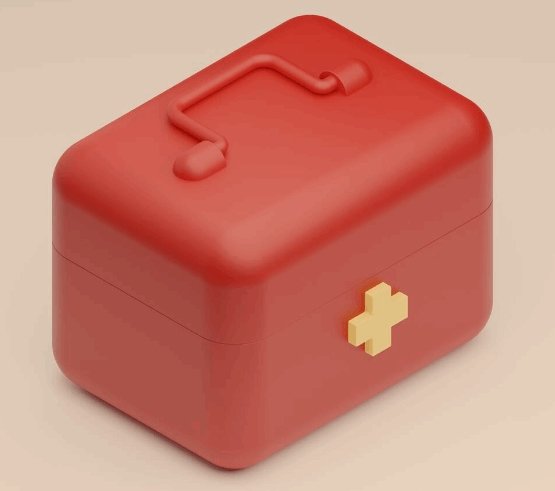
An essential item for any outdoor activity, a first aid kit should include items such as bandages, antiseptic, and pain relief medication. When choosing a first aid kit, consider factors such as size and the types of items included. Look for a kit that is compact, but still includes all the necessary items.
Insect repellent
Protect yourself from insects and bugs that can be found in the great outdoors. When choosing an insect repellent, consider factors such as effectiveness and safety. Look for a repellent that is effective against a wide range of insects, but is also safe for use on your skin.
Protect your skin from harmful UV rays while spending time outdoors. When choosing a sunscreen, consider factors such as SPF rating and water resistance. Look for a sunscreen that provides sufficient protection for your skin type and the conditions you’ll be camping in.
Map and compass or GPS device
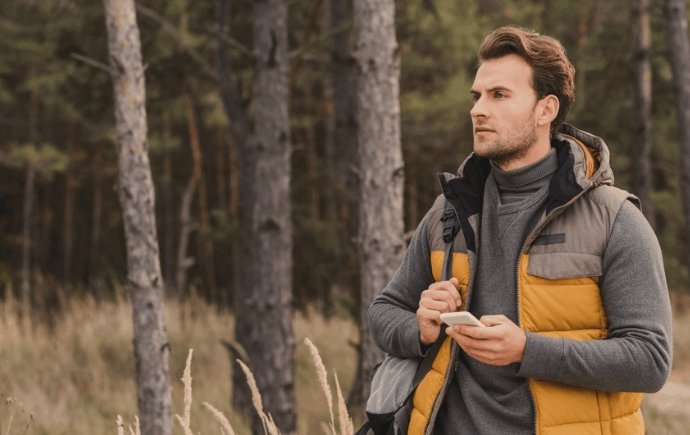
These tools are crucial for navigating and staying on track while hiking. When choosing a map and compass or GPS devices, consider factors such as accuracy, ease of use, and durability. Look for a map and compass that covers the area you’ll be hiking in and that you know how to use. Alternatively, consider investing in a GPS device that can provide more accurate location data and can help you navigate even in challenging terrain.
Multi-tool or knife
An essential item for a variety of tasks, from cutting rope to preparing food. When choosing a multi-tool or knife, consider factors such as size, weight, and durability. Look for a model that has a variety of useful tools and that can handle heavy use.
Rope or cord
Useful for setting up a shelter, hanging food, or securing equipment. When choosing rope or cord, consider factors such as strength and durability. Look for a type of rope or cord that is suitable for the tasks you’ll be using it for.
Camp chairs or stools
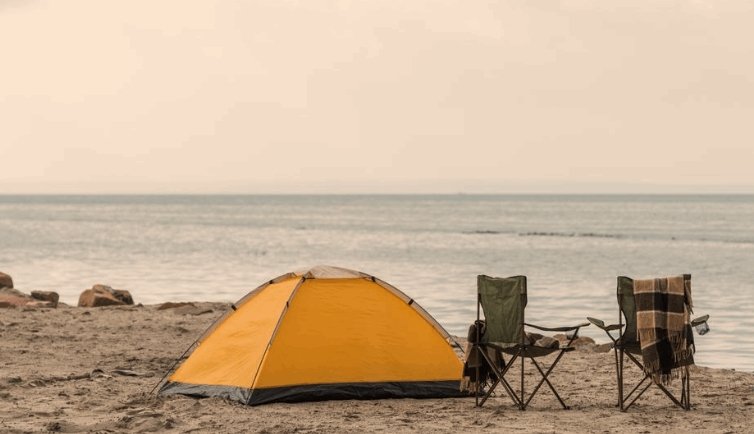
While not essential, camp chairs or stools can provide a comfortable place to sit and relax after a long day of hiking. When choosing a camp chair or stool, consider factors such as weight and portability. Look for a model that is lightweight and easy to carry, but still provides sufficient comfort.
Personal hygiene items, such as toilet paper and hand sanitizer
These items are essential for maintaining hygiene and cleanliness while camping. When choosing personal hygiene items, consider factors such as portability and ease of use. Look for items that are lightweight and can be easily packed.
Warm clothing and layers
Even in warm weather, temperatures can drop at night, so it’s important to bring warm clothing and layers. When choosing to clothe, consider factors such as insulation and moisture-wicking properties. Look for items that can keep you warm and dry in a variety of weather conditions.
In wet weather, having appropriate rain gear is essential for staying dry and comfortable. When choosing rain gear, consider factors such as waterproofness and breathability. Look for a model that can keep you dry, but is also breathable enough to prevent overheating.
Hat and sunglasses

Protecting your head and eyes from the sun is important for staying comfortable and avoiding sunburn. When choosing a hat and sunglasses, consider factors such as sun protection and comfort. Look for items that provide sufficient protection for your skin and eyes, but are also comfortable to wear for long periods.
Related: Is Camping a Hobby?
Finding a Campsite
Finding the right campsite can greatly enhance your camping experience. Here are some common options for finding a place to camp: National and state parks
These parks offer some of the best camping opportunities in the country, with well-maintained campgrounds and access to hiking trails and other outdoor activities. Reservations are often required, especially during peak season, so it’s important to plan ahead.
Private campgrounds
Private campgrounds are often run by individuals or companies and offer a range of amenities, such as showers, laundry facilities, and playgrounds. Some private campgrounds also offer RV hookups and other services. Reservations are recommended, especially during busy times of the year.
Dispersed camping
This is camping outside of designated campgrounds, often in remote or less-traveled areas. Dispersed camping can be a great option for those seeking solitude and a more rustic camping experience. However, it often requires more preparation and self-sufficiency, as there are typically no amenities or facilities available.
Camping Tips for Beginners
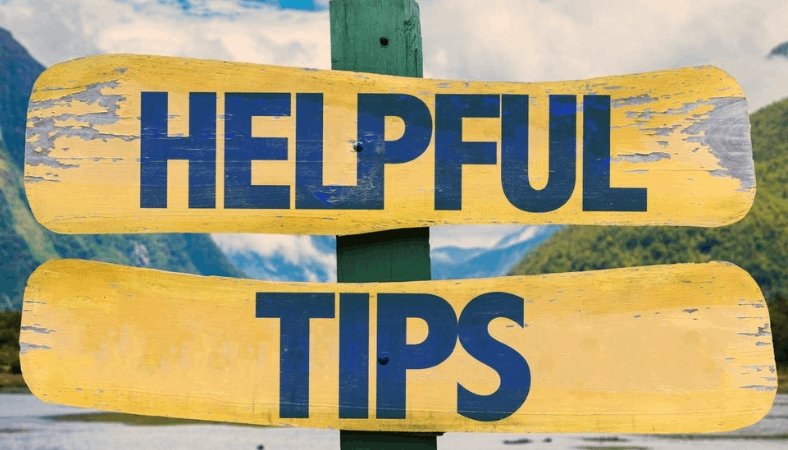
Camping is a wonderful way to connect with nature and create unforgettable memories. However, for beginners, it can be overwhelming to plan and execute a camping trip. Here are some helpful tips to ensure a successful camping experience:
Choosing a campsite
When selecting a campsite, consider factors such as location, amenities, and activities. National and state parks often have well-maintained campgrounds with amenities such as restrooms and fire pits. Private campgrounds may offer more amenities such as showers, swimming pools, and recreational activities. Dispersed camping, which involves setting up camp in a non-designated area, is an option for more experienced campers.
Setting up camp
Once you arrive at your campsite, it’s time to set up camp. Choose a level area to pitch your tent and clear any rocks or debris from the ground. Make sure to properly stake your tent to prevent it from blowing away in the wind. Set up your cooking area and make sure to store food properly to avoid attracting wildlife.
Starting a campfire

A campfire is a classic part of the camping experience, but it’s important to do so safely. Check for any fire restrictions in the area and make sure to use a designated fire ring or pit. Gather firewood from the ground, not from standing trees or branches. Always keep a bucket of water or sand nearby in case of an emergency and make sure the fire is completely extinguished before leaving.
Wildlife safety
Camping often involves being in close proximity to wildlife, so it’s important to take precautions to ensure safety. Keep all food stored in a bear-resistant container or in your vehicle.
Avoid leaving food scraps or trash out in the open. Keep a safe distance from wildlife and never feed or approach them.
Make noise while hiking to alert wildlife of your presence and avoid surprising them. By following these tips, beginners can have a safe and enjoyable camping experience. Remember to always leave your campsite clean and tidy, and respect the environment and wildlife around you.
Benefits of Camping
Camping is not only a fun outdoor activity but also provides numerous benefits for our physical and mental health. Below are some of the benefits of camping:
Health benefits
Camping allows you to engage in physical activities such as hiking, swimming, and cycling, which can help you burn calories and improve your overall health. Being outdoors also provides exposure to sunlight, which is a natural source of vitamin D, important for bone health and overall immune system function.
Connection with nature
Camping provides an opportunity to disconnect from technology and connect with nature. Studies have shown that spending time in nature can lower stress levels, reduce anxiety and depression, and improve overall mood.
Mental and emotional benefits
Camping is a great way to escape from the hustle and bustle of daily life, providing a chance to relax and unwind. Being outdoors and away from screens can also help improve sleep patterns, increase creativity, and enhance problem-solving skills. Overall, camping provides an opportunity to engage in physical activity, connect with nature, and improve mental and emotional well-being, making it a worthwhile activity for people of all ages.
Camping is a popular outdoor activity that offers a range of benefits. To get the most out of your camping experience, it’s important to have the right gear, choose the right campsite, and be prepared for the elements.
Some essential camping gear includes a tent, sleeping bag, sleeping pad or air mattress, camping stove and fuel, cookware and utensils, cooler or ice chest, food and snacks, water bottles or hydration system, headlamp or flashlight, first aid kit, insect repellent, sunscreen, map and compass or GPS device, multi-tool or knife, rope or cord, camp chairs or stools, personal hygiene items, warm clothing and layers, rain gear, hat, and sunglasses.
Camping is a great way to connect with nature and reap the mental and physical health benefits that come with spending time outdoors.
Whether you’re a seasoned camper or a beginner, there’s always something new to learn and discover. So why not give camping a try? With the right gear, a sense of adventure, and a willingness to try new things, you’re sure to have a memorable camping experience.
You Might Also Like
Can you use ski pole for hiking, hiking with sciatica: how to do it, what to put under air mattress when camping.
Tips for First-Time Campers
Camping on a Budget
Top Camping Destinations
Best States to Camp
Top National Parks
Camping in the Fall
Spring Camping Getaways
How to Go Backpacking
Complete Checklist
Backpacking Destinations
Setting Up Camp
FAQs About Camping
Tips for Non-Campers
First Aid Packing List
Camping Chairs
Camping Accessories
Camping Pillows
Air Mattresses
Camping Stoves
Hiking Snacks
Planning a Camping Trip: The Complete Guide
Planning a camping trip begins with the desire to get outdoors. Once you have the itch, you'll only need to pick a date, find a campground, choose a route, prepare your gear, go grocery shopping, and head out.
Sounds simple, doesn't it? It actually is and it gets easier with each trip to the campground. Whether you're a new camper or a veteran, let's review some tips for planning your next outdoor adventure.
Where to Go
There are two types of campgrounds: Private and public. Both have their advantages but finding a good one can be hard. That is why it's a good idea to use campground reviews and ratings to guide you. Resources like AAA and Trailer Life compile all the information you need to see if a campground is right for you.
Take into consideration if you're staying in a tent or a camper or RV. Some campgrounds are more tent-friendly than others. Likewise, some have all the amenities and hookups necessary for campers.
Do you care if there's a shower and flush toilets or are you okay with roughing it for the weekend? This is a big factor for many campers and a campground guide includes this type of information. You can also choose public parks which tend to be rustic and offer a variety of outdoor recreation options or opt for modern campgrounds that may have a game room, store, or pool.
Be aware that some campgrounds require reservations, others offer it as an option or are first-come-first-serve. If you know it's going to be a busy weekend—Memorial Day, Fourth of July, and Labor Day, in particular—be sure to get a reservation or show up early.
Another option is to head out to a festival that's centered around camping . They're great fun and offer music and other activities just outside your tent.
TripSavvy / Lauren Breedlove
Top Destinations
Campers love the great outdoors, pristine natural environments, and the adventures that inspire in the wild. While it's likely that there's a great campsite nearby no matter where you live, if you're looking for a destination to travel to, we have some ideas.
Every state has its fair share of national and state parks and these really do offer some of the best camping opportunities. Yet, some states are better known for having really great campgrounds to choose from . Also, if you have not camped at any of the top national parks , add them to your bucket list. You won't regret it.
Glacier National Park in Montana is a favorite for many campers. Lake Tahoe is another camping destination to consider, and you can find some nice spots along California's coastline .
Gather Your Gear
Do you need a checklist to make sure you've packed all your gear? While you might decide to bring along a few extra things, there are some items that are absolutely essential.
As far as camping gear goes, you will need three basic things . A place to sleep is most important, so grab a tent. Something to sleep on and keep you warm is good as well, which is why sleeping bags are necessary. Also, a few things to cook your meals will help out tremendously.
Gear in hand, now you need the supplies . Food and water are essentials for obvious reasons. You might also want a backpack cooler , camp stove, some rain gear for everyone, a knife, and a lantern or flashlight (or both).
Don't forget the first aid kit , either. You'll be miles away from town and you never know when someone will get a cut, bee sting, or some other injury that needs a quick fix.
No shower house at your campground? There's no need to go without bathing, all you need is a camp shower that's allowed to warm in the sun while you're busy with the day's activities.
When you get to the campground, you'll need to check in at the office or camp host. Find a good site that looks like a place you could hang for the weekend. The campsites with the most shade are prime real estate, so try to get there early.
From there, you'll set up your camp . Select the site for your tent, set out your cooking supplies, and settle in.
One thing you'll quickly learn is that there are annoying campers. Don't be one of them and learn what not to do on a camping trip . This includes many common sense things like respect your neighbors, keep the camp clean and understand that wildlife will be around.
When you're ready to leave and head home, be sure that your site looks how it did (or better than) when you arrived. The common phrase is "leave no trace" and that means you should take your trash with you, dowse your fire properly, and pack up all your gear. When you get home, unpack everything and let it dry and air out before storing it permanently.
Plan a Backcountry Trip
Backcountry camping, or backpacking, is essentially the combination of hiking and camping in the wilderness. Don't let the unfamiliar landscape or worries of being in the wild keep you from going backpacking. It's a lot of fun and a real outdoor adventure.
If you've not backpacked before , it's a little different than grabbing a campsite at the state park. You'll be in a remote area without your car to rely on, so it's important to take only the essential gear you'll need. It's also important to choose the right campsite, though some popular backcountry destinations offer designated sites along the way.
Also, you should be fit enough to handle the hike and understand who to call or how to get to help in case there's an emergency. Check with the park ranger in the area about any important details like that and other tips they can give you.
Tips for RV Camping
Your RV is your home away from home. It is also the most convenient way to go camping because your RV has everything you need. Just hook it up to the truck or hop in the cab and you're off to a new adventure .
While RVing is a more luxurious way to camp, it does have its own concerns. First of all, you most likely need to reserve campsites to ensure you get the electrical hookups you need. You'll also want a dump station nearby.
Along the way (and before you go) you'll want to keep up on maintenance and do some routine safety checks . RVs are great, but they are one giant vehicle with a hundred things that can go wrong. Yet, if you know what to look for and how to maintain it, it can offer years of great fun.
The 9 Best Camping Cots of 2024, Tested and Reviewed
The Best Camping Spots at Lake Tahoe
The Best Places to Go Camping in Olympic National Park
Planning an RV Trip: The Complete Guide
The 11 Best Campgrounds in Big Sur
Do Not Go Camping Without These 9 Things
Everything You Should Pack for a Camping Trip
Everything You Need to Know for Your First Campervan Trip
How to Buy a New Camping Tent
The 8 Best Air Mattresses for Camping of 2024, Tested and Reviewed
Camping in Whitefish, Montana and Glacier National Park
3 Types of Places to Park Your RV
Henry Horton State Park: The Complete Guide
Hanging Rock State Park: The Complete Guide
Everything You Should Know Before Renting Your First RV
Rock Raven State Park: The Complete Guide
Looking For An Adventure Holiday?
Provide your details, we'll call back, please try again later., enter your registered email address.

Forgot your password? Recover it here --> Forgot your password? Recover it here Back to Sign in

ACTIVITY GUIDE
- Accessible Adventures
- Adventure Running
- Bungee Jumping
- Camel Safari
- Horse Safari
- Hot Air Ballooning
- Jeep Safari
- Mountaineering
- Off Roading
- Outdoor Photography
- Paragliding
- River Cruising
- River Rafting
- Rock Climbing
- Scuba Diving
- Wildlife Safari
- Wind Surfing
DESTINATION GUIDES
- Annapurna Base Camp
- Arunachal Pradesh
- Bandhavgarh National Park
- Bir-Billing
- Cherrapunji
- Chilika Lake
- Dharamsala and McLeod Ganj
- Everest Base Camp
- Gir Forest National Park
- Hemis National Park
- Jim Corbett National Park
- Kanha National Park
- Karnala Bird Sanctuary
- Kaziranga National Park
- Keoladeo National Park
- Kilimanjaro
- Kruger National Park
- Lahaul and Spiti
- Lakshadweep
- Maasai Mara National Reserve
- Manas National Park
- Mudumalai National Park
- Mustang Valley
- Nagarhole National Park
- North Sikkim
- Nubra Valley
- Okavango Delta
- Pahalgam & Sonamarg
- Panna National Park
- Parvati Valley
- Pench National Park
- Rajaji National Park
- Rann of Kutch
- Ranthambore National Park
- Sariska Tiger Reserve and National Park
- Serengeti National Park
- Solang Valley
- Sultanpur National Park
- Tirthan Valley
- West Sikkim
- Western Ghats
Related Tribes
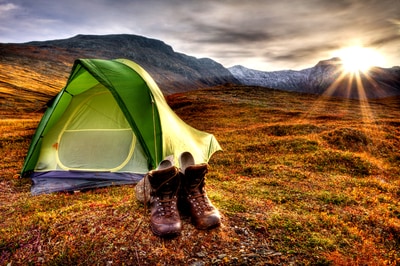
What is Camping
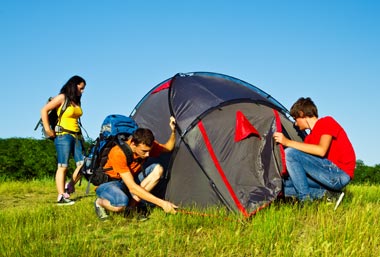
Camping is a recreational (and oftentimes laid-back) activity pursued outdoors, away from cities and towns and in the lap of nature, with fresh air and (occasionally) wildlife for company. One can set up a tent, or live in a caravan, camper-van or motor-home when camping. But the classic camping trip involves toughing it out in tents – and at the mercy of Mother Nature. Camping can be – and usually is – combined with other adventure activities, such as hiking/trekking, fishing, whitewater rafting and kayaking, giving one the ultimate outdoors experience. It can be an individual pursuit, but is often done in the company of friends and family. It’s a pastime that can be enjoyed by the young and the old. Camping is also a convenient option for those attending music festivals or sports gatherings. While camping has moved on from its rough-and-ready, back-to-nature origins, hardy folks are still willing to rough it out in the wilderness, no matter how conspiratorial the elements might be. But for families, with kids in tow, camping is the perfect activity for a vacation.
History of Camping
Tents have been used for centuries – by Native Americans (wigwams), by Mongolian and Central Asian nomads (yurts), and by armies moving from battleground to battleground. As a pastime, camping took off in popularity in the British Isles towards the end of the 19th century, as the Victorian era drew to a close. A fellow by the name of Thomas Hiram Holding, who was the author of the first known camper’s handbook (1908), which detailed the essentials of camping, is regarded as the father of modern recreational camping. Holding, an itinerant tailor by profession, was one of the movers behind the Camping and Caravanning Club – among those who have acted as head of the club are Captain Robert Falcon-Scott (‘Scott of the Antarctic’) and Robert Baden-Powell, founder of the scouting movement. Holding’s experiences in the outdoors included crossing the prairies of the US in a wagon train as a young boy, camping with a canoe in the Highlands of Scotland, and camping with a bicycle in the northwest of Ireland. While people took to communing with nature, and sleeping out under the stars, as a means of escape from the stresses of city life, they still had to contend with the elements. Here, caravans came to the rescue, and caravanning as an offshoot of camping became popular in the 1930s. In the USA, camping became an organized activity post the Second World War, as Americans became more mobile and sought new leisure options. Youth groups like the Boy Scouts and Girl Guides incorporate the activity as part of inculcating the virtues and values of teamwork and self-reliance – through camping, one learns how to survive in the wilds.
Camping in India
Camping and campers form much less of the landscape in India than they do in places like Europe, the US and Australia. But there is, nevertheless, a dedicated, enthusiastic and growing bunch of campers who are looking to make the most of India’s natural beauty by setting up camp in out-of-the-way places, as far away from civilization as possible. Indeed, India has plenty of beauty spots for the happy camper – and the adventurous one. What you won’t come across in India are commercial campsites, teeming with vacationing folk (this is common in Britain); because camping is (still) the hobby of a few, ‘campsites’ here are likely to be solitary and quiet locations. Camping in India, then, is still done wild, without the amenities and comforts of modern campsites – which really is the best way to experience this very outdoorsy pastime. Deserts, beaches and even national parks (Gir and Bandhavgarh, for example) make for splendid camping destinations. Know more about popular options for Camping in India .
Tent, torch/flashlight/lantern, sleeping bag, lockable duffel bag (recommended), Therm-a-Rest/air mattress, Swiss Army knife, stove, whistle, lighter, hammer/mallet (to drive tent stakes into the ground), axe/saw/hatchet (for chopping firewood for campfire), ropes, tarpaulin (to protect against rain), food storage, cooler (to store drinks and fresh produce)
Best season in India
It’s unadvisable to camp out in the open in bone-chilling cold or enervating heat (unless you’re an extreme adventurer!). That leaves the rest of the year, plenty of time to plan a camping trip. The months of spring and autumn are the ideal, while both early summer and early winter offer delightful conditions for a bit of outdoors relaxation (or adventure!).
Camping sites in India
Ladakh – Nubra Valley, Pangong Tso Himachal Pradesh – Chandratal Lake, Kaza (Spiti Valley), Sarchu (Lahaul), Sangla, Kalpa (Kinnaur), Solang Valley (Manali), Dharamsala Uttarakhand – Chitrauli (Nainital), Chamba (Garhwal), Kumaon, Mussoorie, Rishikesh, Chilla, Kaudiyala, Corbett National Park Jammu and Kashmir – Sonamarg
Rajasthan – Jaisalmer, Pushkar
Goa – Anjuna
Out in the open, you’ll come across denizens of the wilderness who might think you’re trespassing on their territory, so do maintain a respectful distance. Come well prepared (see equipment), and ready for any emergency. Nature, in the form of the animal kingdom and the weather, does tend to spring some nasty surprises, so make sure you have your wits about you. And come equipped with bucketloads of patience!
Medical concerns
Bring a first-aid kit and insect repellant, along with some sunscreen and sanitizer. Don’t forget to pack rations you might need in an emergency.
Ecological concerns
Campers are fortunate to have the sky as a roof, and the earth as a floor – don’t take your environs for granted. Since camping is, by and large, pursued outdoors, it is important to not disturb the inhabitants of the area, and their habitats. When setting up camp, be ecologically sensitive to your immediate surroundings, intruding as little as possible on the flora and fauna of the area. And do not litter – bring trash bags to dispose of all rubbish.
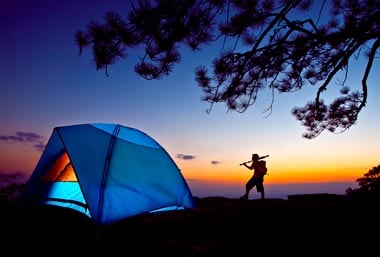
Where to go
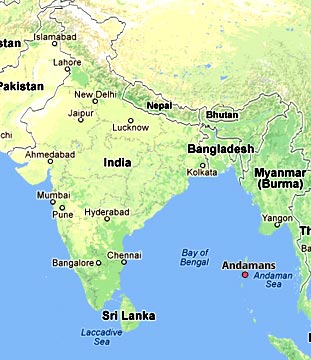
Ideal Conditions
- The more pleasant it is overhead � not too hot, not too cold � the more perfect it is for spending a few days (or a few weeks, even) out in a tent (do check on the local climate before setting out). Rain should not be a �dampener� to your trip, so long as you bring enough waterproofs.
What to wear
Rugged workaday cloths(jeans,corduroys,regular shir or T-Shirt)
Recommended Adventures

Camping at Banjara Camp in Sangla Valley
Adventure nation.

Camping at Banjara Camp in Sojha

Camping at Banjara Camp in Thanedar
Camping at Leopard Beach,Rishikesh

Luxury Glamping at Panther Adventure Resort, Rishikesh

Camp Wild at Aravali Valley

Alluring wildlife at K Gudi Wilderness Camp, BRT Hills

Bheemeshwari Nature and Adventure Camp

Adventure Camp Bangalore
Related gurus.
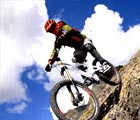
Peter Stewart

Rajesh Ojha
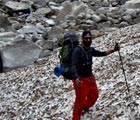
Tejbir Singh Anand
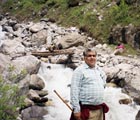
Capt Swadesh Kumar
Connecting people to experience the great outdoors., adventures activities in india.
River Rafting in India River rafting in India offers you an excursion through a series of adrenaline-rushing rapids down the fast streams.
Adventure Tours in India Know more about the most popular adventure tours in India.
Wildlife Safari Tours in India Know more about the most popular wildlife tours in India.
Quick Links
Paragliding in India Paragliding in India can be enjoyed at various hill stations dotted across the country.
Skiing in India Know more about the most popular skiing destinations in India.
Bungee Jumping in India Explore Bungee Jumping options in India.
Popular Adventures
Know more about the most popular treks in India - Trekking in India
Know more about the most popular hot air ballooning destinations in India - Hot Air Ballooning in India
Relax in the lap of the nature and enjoy in the wilderness - Camping in India
Know more about the most popular scuba diving destinations in India - Scuba Diving in India
- © 2013 Adventure & Nature Network Pvt. Ltd.
- Partner With Us
- Work With Us
- Terms & Conditions
- Privacy Policy
- Skip to global NPS navigation
- Skip to the main content
- Skip to the footer section

Exiting nps.gov
Explore nature -- camp.
Sometimes spending a day in the wilderness isn't quite enough to truly capture the feeling of a special place. Sure, you see some amazing views or go on an unforgettable hike. But to get the full experience, you yearn to see the dark, starry skies. To listen to the yips of coyotes. To watch the sun rise on a silent, dewy morning. Camping in the great outdoors transforms a regular old road trip into an epic experience. So pack up your tent or hitch up the fifth wheel — adventure awaits.
Embed Video
A short video featuring a group of friends camping in a national park.
So, you want to go camping for the first time, but where do you start? We can help!
Staying in a campground or heading out to the wilderness? Use these practices for before, during, and after your camping experience.
Last updated: May 4, 2023
- Cambridge Dictionary +Plus
Meaning of camping – Learner’s Dictionary
Your browser doesn't support HTML5 audio
(Definition of camping from the Cambridge Learner's Dictionary © Cambridge University Press)
Translations of camping
Get a quick, free translation!

Word of the Day
troubleshoot
to discover why something does not work effectively and help to improve it

Searching out and tracking down: talking about finding or discovering things

Learn more with +Plus
- Recent and Recommended {{#preferredDictionaries}} {{name}} {{/preferredDictionaries}}
- Definitions Clear explanations of natural written and spoken English English Learner’s Dictionary Essential British English Essential American English
- Grammar and thesaurus Usage explanations of natural written and spoken English Grammar Thesaurus
- Pronunciation British and American pronunciations with audio English Pronunciation
- English–Chinese (Simplified) Chinese (Simplified)–English
- English–Chinese (Traditional) Chinese (Traditional)–English
- English–Dutch Dutch–English
- English–French French–English
- English–German German–English
- English–Indonesian Indonesian–English
- English–Italian Italian–English
- English–Japanese Japanese–English
- English–Norwegian Norwegian–English
- English–Polish Polish–English
- English–Portuguese Portuguese–English
- English–Spanish Spanish–English
- English–Swedish Swedish–English
- Dictionary +Plus Word Lists
- Learner’s Dictionary Noun
- Translations
- All translations
To add camping to a word list please sign up or log in.
Add camping to one of your lists below, or create a new one.
{{message}}
Something went wrong.
There was a problem sending your report.
Example sentences camping trip
Decide on a scenario - let's say a camping trip .
No camping trip would be complete without face wipes, which double as an all-over-the-body, any-spills-and-stains cleansing wipe.
Before you go on a camping trip , it's a good idea to practise for a night in the garden.
The setting for these ancient couples was a camping trip , so we got jokes about caravans, barbecues, sleeping bags and cycling.
Flooding need never again ruin a camping trip .
Definition of 'camp' camp

Definition of 'trip' trip

Related word partners camping trip
Browse alphabetically camping trip
- camping stool
- camping stove
- camping trailer
- camping trip
- camping van
- All ENGLISH words that begin with 'C'
Quick word challenge
Quiz Review
Score: 0 / 5
Wordle Helper

Scrabble Tools
- Biographical
- More from M-W
- To save this word, you'll need to log in. Log In
Definition of camp
(Entry 1 of 5)
Definition of camp (Entry 2 of 5)
intransitive verb
transitive verb
Definition of camp (Entry 3 of 5)
Definition of camp (Entry 4 of 5)
Definition of camp (Entry 5 of 5)
- accommodate
Examples of camp in a Sentence
These examples are programmatically compiled from various online sources to illustrate current usage of the word 'camp.' Any opinions expressed in the examples do not represent those of Merriam-Webster or its editors. Send us feedback about these examples.
Word History
Noun (1) and Verb (1)
Middle French, probably from Middle French dialect (Picard) or Old Occitan, from Latin campus plain, field
Noun (2), Adjective, and Verb (2)
origin unknown
1528, in the meaning defined at sense 1a
1543, in the meaning defined at intransitive sense 1
circa 1909, in the meaning defined at sense 2
1909, in the meaning defined above
1910, in the meaning defined above
Phrases Containing camp
- aide - de - camp
- camp follower
- camp meeting
- concentration camp
- prison camp
- set up camp
- transit camp
Articles Related to camp
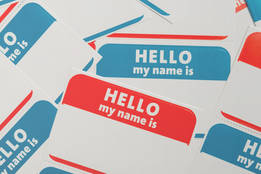
Merriam-Webster's Words of the Year 2019
Our Word of the Year 'they,' plus 10 more

Trending: Met Begins 'Camp: Notes on...
Trending: Met Begins 'Camp: Notes on Fashion'

Notes on 'Campy'
Plus: how to use n'importe in a sentence
Dictionary Entries Near camp
Cite this entry.
“Camp.” Merriam-Webster.com Dictionary , Merriam-Webster, https://www.merriam-webster.com/dictionary/camp. Accessed 16 May. 2024.
Kids Definition
Kids definition of camp.
(Entry 1 of 2)
Kids Definition of camp (Entry 2 of 2)
Medical Definition
Medical definition of camp, biographical definition, biographical name, definition of camp, more from merriam-webster on camp.
Nglish: Translation of camp for Spanish Speakers
Britannica English: Translation of camp for Arabic Speakers
Britannica.com: Encyclopedia article about camp
Subscribe to America's largest dictionary and get thousands more definitions and advanced search—ad free!

Can you solve 4 words at once?
Word of the day.
See Definitions and Examples »
Get Word of the Day daily email!
Popular in Grammar & Usage
More commonly misspelled words, your vs. you're: how to use them correctly, every letter is silent, sometimes: a-z list of examples, more commonly mispronounced words, how to use em dashes (—), en dashes (–) , and hyphens (-), popular in wordplay, birds say the darndest things, the words of the week - may 10, a great big list of bread words, 10 scrabble words without any vowels, 12 more bird names that sound like insults (and sometimes are), games & quizzes.

- Dictionaries home
- American English
- Collocations
- German-English
- Grammar home
- Practical English Usage
- Learn & Practise Grammar (Beta)
- Word Lists home
- My Word Lists
- Recent additions
- Resources home
- Text Checker
Definition of camping noun from the Oxford Advanced American Dictionary
Questions about grammar and vocabulary?
Find the answers with Practical English Usage online, your indispensable guide to problems in English.
Other results
Nearby words.
Empower heroes: Join Wish of a Lifetime from AARP in honoring veterans.
AARP daily Crossword Puzzle
Hotels with AARP discounts
Life Insurance
AARP Dental Insurance Plans
AARP MEMBERSHIP — $12 FOR YOUR FIRST YEAR WHEN YOU SIGN UP FOR AUTOMATIC RENEWAL
Get instant access to members-only products and hundreds of discounts, a free second membership, and a subscription to AARP the Magazine.
- right_container
Work & Jobs
Social Security
AARP en Español
- Membership & Benefits
- AARP Rewards
- AARP Rewards %{points}%
Conditions & Treatments
Drugs & Supplements
Health Care & Coverage
Health Benefits

Staying Fit
Your Personalized Guide to Fitness

AARP Hearing Center
Ways To Improve Your Hearing

Brain Health Resources
Tools and Explainers on Brain Health

A Retreat For Those Struggling
Scams & Fraud
Personal Finance
Money Benefits

View and Report Scams in Your Area

AARP Foundation Tax-Aide
Free Tax Preparation Assistance

AARP Money Map
Get Your Finances Back on Track

How to Protect What You Collect
Small Business
Age Discrimination

Flexible Work
Freelance Jobs You Can Do From Home

AARP Skills Builder
Online Courses to Boost Your Career

31 Great Ways to Boost Your Career

ON-DEMAND WEBINARS
Tips to Enhance Your Job Search

Get More out of Your Benefits

When to Start Taking Social Security

10 Top Social Security FAQs

Social Security Benefits Calculator

Medicare Made Easy
Original vs. Medicare Advantage

Enrollment Guide
Step-by-Step Tool for First-Timers

Prescription Drugs
9 Biggest Changes Under New Rx Law

Medicare FAQs
Quick Answers to Your Top Questions
Care at Home
Financial & Legal
Life Balance

LONG-TERM CARE
Understanding Basics of LTC Insurance

State Guides
Assistance and Services in Your Area

Prepare to Care Guides
How to Develop a Caregiving Plan

End of Life
How to Cope With Grief, Loss
Recently Played
Word & Trivia
Atari® & Retro
Members Only
Staying Sharp
Mobile Apps
More About Games

Right Again! Trivia

Right Again! Trivia – Sports

Atari® Video Games

Throwback Thursday Crossword
Travel Tips
Vacation Ideas
Destinations
Travel Benefits

Outdoor Vacation Ideas
Camping Vacations

Plan Ahead for Summer Travel

AARP National Park Guide
Discover Canyonlands National Park

25 Ways to Save on Your Vacation
Entertainment & Style
Family & Relationships
Personal Tech
Home & Living
Celebrities
Beauty & Style

TV for Grownups
Best Reality TV Shows for Grownups

Robert De Niro Reflects on His Life

Looking Back
50 World Changers Turning 50

Sex & Dating
Spice Up Your Love Life

Navigate All Kinds of Connections

Life & Home
Couple Creates Their Forever Home

Home Technology
Caregiver’s Guide to Smart Home Tech

AI Technology
The Possibilities, Perils of AI

Virtual Community Center
Join Free Tech Help Events

Create a Hygge Haven

Soups to Comfort Your Soul

Your Ultimate Guide to Mulching
Driver Safety
Maintenance & Safety
Trends & Technology

AARP Smart Guide
How to Keep Your Car Running

We Need To Talk
Assess Your Loved One's Driving Skills

AARP Smart Driver Course

Building Resilience in Difficult Times

Tips for Finding Your Calm

Weight Loss After 50 Challenge

Cautionary Tales of Today's Biggest Scams

7 Top Podcasts for Armchair Travelers

Jean Chatzky: ‘Closing the Savings Gap’

Quick Digest of Today's Top News

AARP Top Tips for Navigating Life

Get Moving With Our Workout Series
You are now leaving AARP.org and going to a website that is not operated by AARP. A different privacy policy and terms of service will apply.
Camping and RVing Ideas
Go to Series Main Page
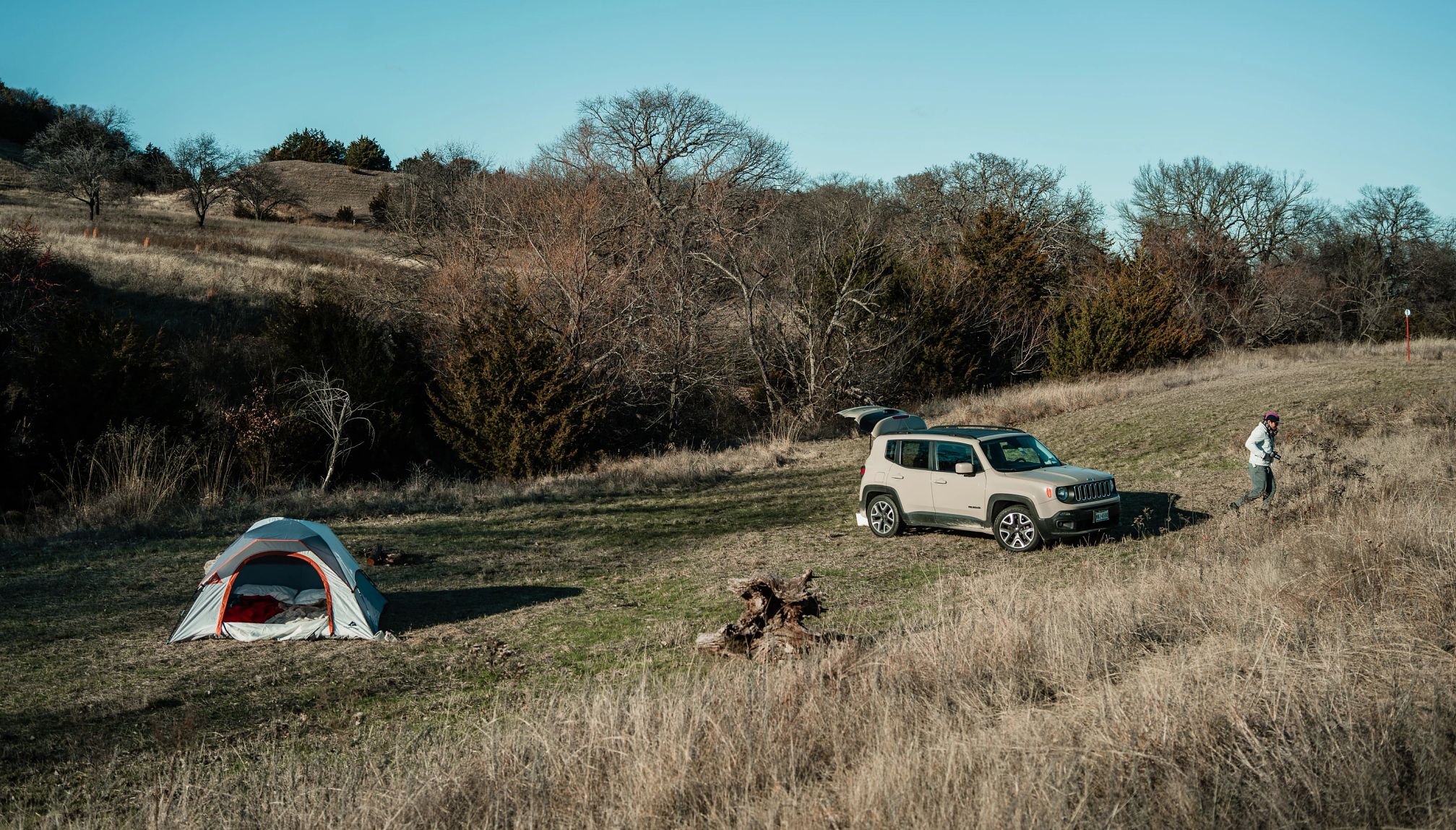
Try Brewery or Winery Camping for a Fun RV Experience
Camping at a winery offers overnight accommodations and amenities such as sunset wine tastings
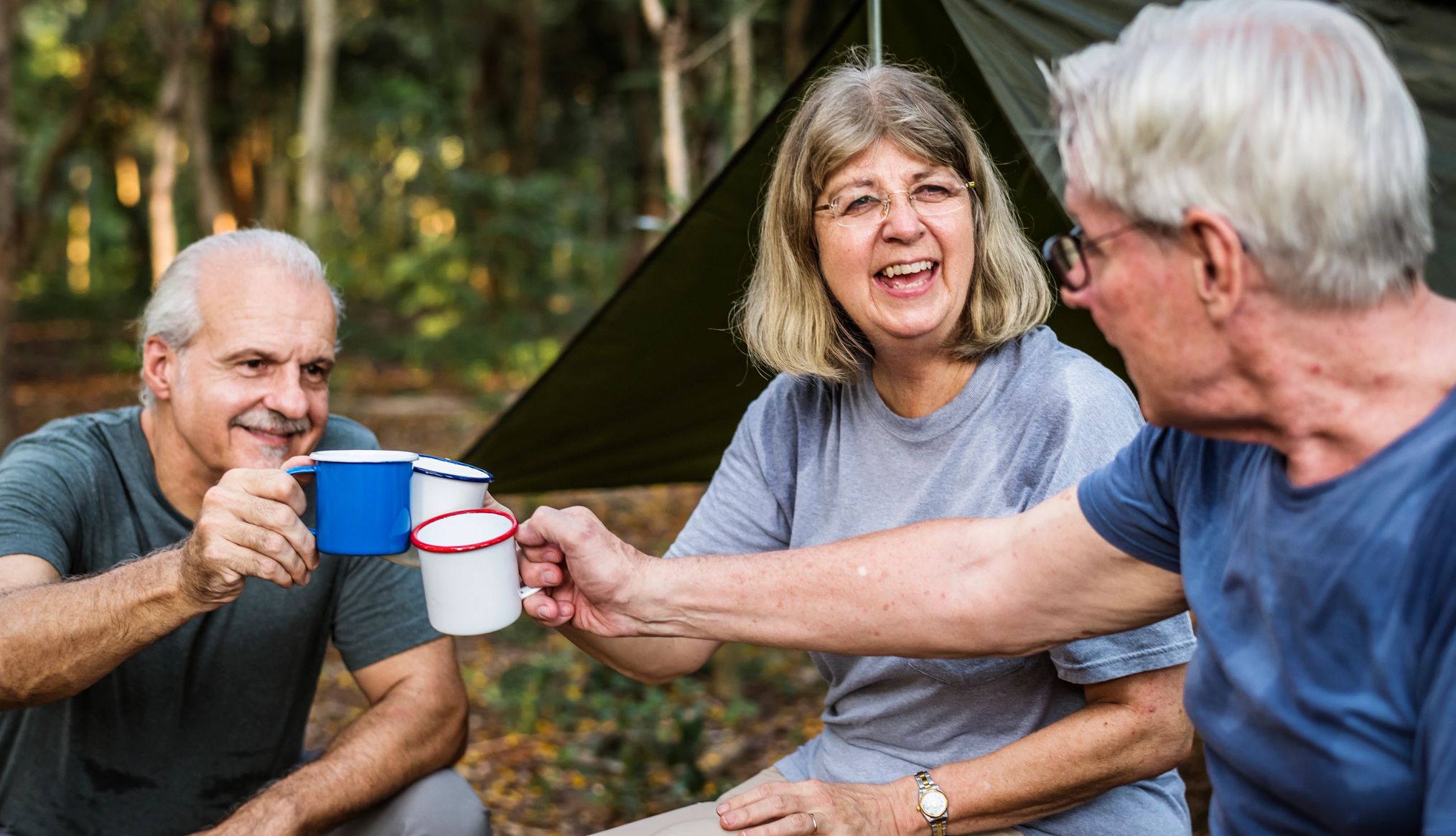
10 Adult Summer Camps to Get Away and Learn New Things
People over 50 can unleash their inner child at one of these adult camps
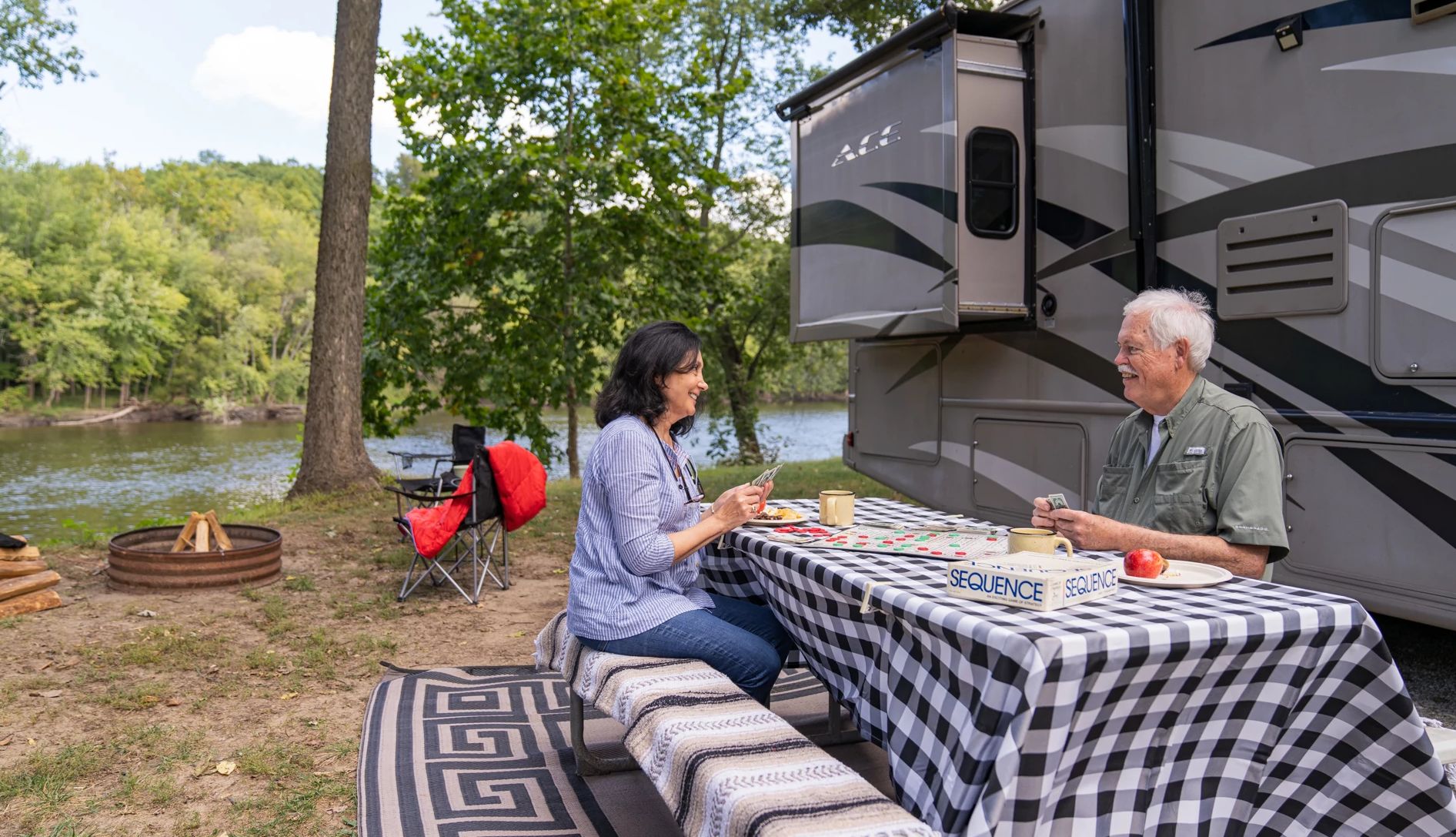
RV Curious? What You Need to Know Before Renting an RV
Get some pointers on how to rent an RV, with tips on where to look and how to research
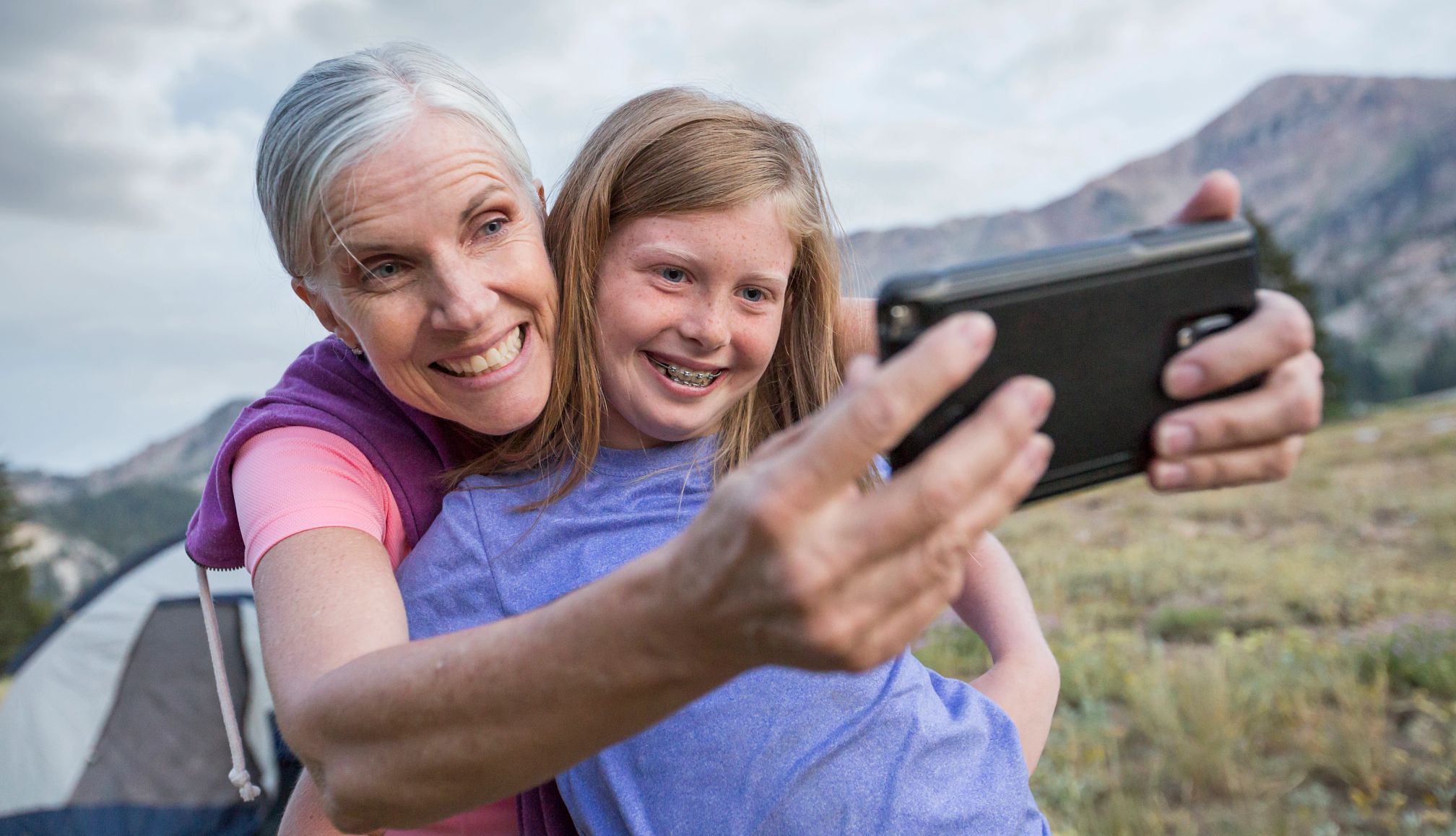
Tips for a First Camping Trip With Grandkids
Family camping is a perfect opportunity to bond with grandchildren. gather camping ideas to plan an awesome adventure.

Terry Ward,
Summer is coming, and with it, pleasant temperatures across much of the United States that just beg for time spent outdoors , enjoying nature.
Planning a family camping adventure with kids or grandkids is a great way to make your precious bonding time together last longer — and naturally unplugged too.

AARP Membership — $12 for your first year when you sign up for Automatic Renewal
When it comes to entertaining children, time in nature has been proven to be one of the best options, with benefits such as building confidence, teaching responsibility, getting kids moving, and even reducing stress and fatigue, according to the Child Mind Institute, a New York–based nonprofit that works to improve the lives of children struggling with mental health.
But to plan a camping adventure with young children , you might be wondering where to start — and that applies whether it’s your very first time camping at all or your first time attempting to do it with kids in tow.
“I would suggest going as a couple first or camping with friends before taking children,” says former scout leader Peggy Cleveland, 61, of Tacoma, Washington. It’s important to know that you enjoy the experience before embarking on it with kids, she says.
From there, you can graduate to camping in the backyard with the kids or grandkids, or even venturing to a park or campground close to home, Cleveland says.
“You want to be close enough to home that you can throw everything in the car in the event it is a disaster,” she says.
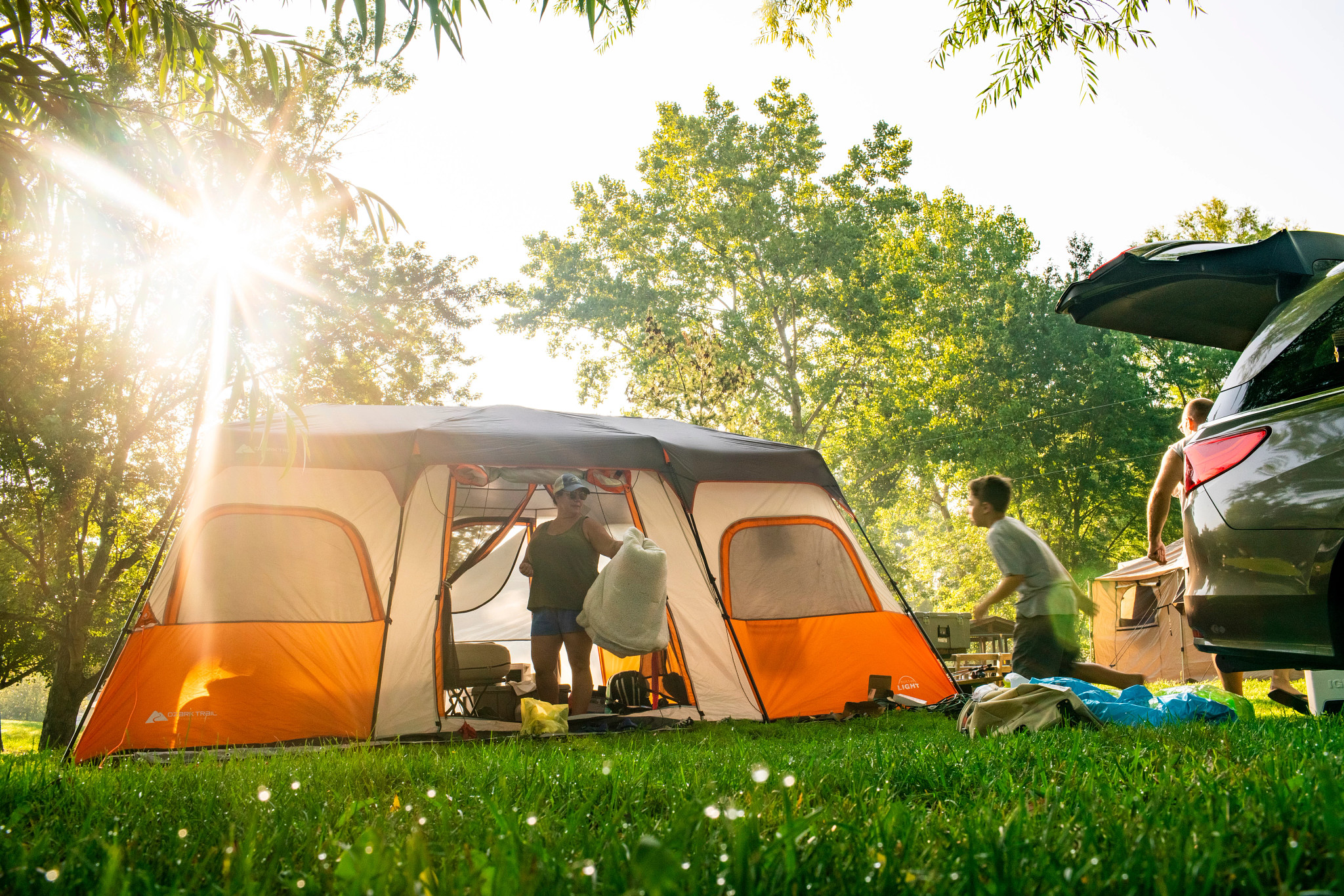%20copy.jpg?crop=true&anchor=22,120&q=80&color=ffffffff&u=2xkwh0&w=2005&h=1152)
Limiting your camping trips to a weekend before building up to longer stays is a good idea too, she says. Cleveland recommends a combination of tent and car camping (which is when you pull your car right up to a campsite and keep everything handy, as opposed to hiking to the site and carrying everything with you) for a first camping trip with children.
And new campers might want to consider a fall adventure to start, she says, calling it the perfect season for beginners. “It is not as hot, and the cooler evenings are more conducive to sleep,” Cleveland says.
Slow your pace and enjoy the lessons along the way
Part of the joy of a camping trip with kids is exposing them to life lessons you can’t always instill in the same way when surrounded by four walls at home or in a classroom.
“Activities like setting up camp exposes [kids] to valuable life skills, like problem-solving and resourcefulness,” says Diane Eichler, senior vice president of marketing at Kampgrounds of America (KOA). But it’s important to proceed at a slower pace so kids can keep up with everything that camping involves, she warns.
“Engage them as much as possible and allow extra time for setting up camp, preparing meals, and hiking or exploring, as kids may need more breaks along the way,” Eichler says.
And don’t forget to embrace the magic of the experience together.
ARTICLE CONTINUES AFTER ADVERTISEMENT
“[Kids] bring awe at discovering new things and joy at being in the outdoors,” she says.
While setting up the campsite is a group activity, Cleveland suggests designating appropriate tasks so each child can help in their own way.
Holland America Line
Up to $200 onboard credit on select cruises
“Make sure each child is paired with an adult who is responsible for watching them,” she adds. “It is easy for kids to wander off if they don’t have something to do.”
Cleveland advises staying flexible while also planning each day while camping.
“You won’t be sitting around the campsite sipping wine,” she says. “Do an active activity in the morning such as a hike. Return to the campsite for lunch and a nap for younger children. Look up camp games, or teach them something new like how to make a knot or start a fire.”
For your first time camping with kids, opt for a place with lots of room to roam and explore, says Chrys Watson, 69, a grandmother of seven, including six she’s taken camping.
“If you’re just starting out, a KOA would be a good place,” says Watson. “There are a lot of campgrounds that are out in the woods or up in the mountains that have a lot of facilities too.”
One of Watson’s favorite places to take her own kids when they were younger was Fun Valley Family Resort in South Fork, Colorado. Fishing, hiking, tubing, miniature golf and paddleboats are among the many on-site activities to keep little ones busy.
Closer to their home in Leedey, Oklahoma, Watson and her husband have taken their grandkids camping at state parks, including Roman Nose State Park and Foss State Park.
“Look for places that are wide open, with lots of places for them to climb up on rocks and slide down and explore,” Watson says. “It’s the easiest and cheapest entertainment there is for them. They love it.”
Be sure to set ground rules while camping, she recommends, including ensuring that they understand not to wander off and to be aware of wildlife such as snakes.
National parks have great campgrounds, says Cleveland, but it can be difficult to secure a campsite reservation in peak season.
“Most people are familiar with state parks in their home state but fail to consider other states,” she says, so be sure to research state parks beyond your home base for camping options.
To make sure everyone sleeps comfortably, you’ll want to pack warm, insulated sleeping bags and cushioned or blow-up air mattresses to soften any roots, gravel or rocks under you at the campsite.
Make meal time easy

Gathering around the campfire or at a picnic table under the shade of a tall pine tree to enjoy a meal together is a stellar camping moment. It’s best to make meal time as easy as possible, especially when you’re new to cooking alfresco and with limited utensils at your disposal.
Sara Healy, a Tampa, Florida, mother of three, has enjoyed camping at KOAs as well as Yogi Bear’s Jellystone Park Camp-Resorts around the U.S.
“Jellystone campgrounds have some of the most robust programming of any campground we have visited,” Healy says, citing tie-dye, candy bar bingo and water play areas as examples.
When it comes to food, she says one-pot meals simplify things.
Her kids always enjoy “hairy hot dogs,” made by slicing uncooked hot dogs into discs and skewering them with three or four pieces of uncooked spaghetti noodles. Boil on a camp stove or over the fire until the pasta is cooked, then top with your choice of sauce. (“My kids liked cheddar sauce the most,” Healy says.)
Watson suggests bringing along a cast iron skillet and grate to place over a fire, as well as a large griddle to use over the fire or with a propane tank.
“We make sweet potato hash, cut up with onions, peppers, eggs and sausage, and stir it all together and make it over the fire,” she says. The griddle also works well for pancakes and other one-dish recipes.
Cleveland points to a mixture of peanut butter, oatmeal, raisins or dried fruit, M&M’s or chocolate chips, and nuts as a breakfast favorite for campers.
“Mix it up according to how many people. No measuring necessary, just add ingredients and mix until it all sticks together,” she says. “Slap about 1 cup per person in a bowl or on plate and eat away. It is so good.”
If you don’t have running water at your campsite, Watson recommends bringing a small tub and 5-gallon container of water for washing dishes.
Whatever you do, don’t forget the fixings for s’mores, Watson says.
“Kids find their fun in nature. You don’t hear an ‘I don’t have anything to do,’ ” she says. But there is one thing they always request while camping: “They want to roast marshmallows and s’mores at dark, then they just want to go to sleep,” she says.
Terry Ward is a travel journalist who lives in Tampa, Florida, and loves to scuba dive and camp with her kids. She is a contributing writer who covers food, drink and travel, and her work has appeared in National Geographic Traveler and The Washington Post and on cnn.com.
Discover AARP Members Only Access
Already a Member? Login
MORE FROM AARP

Camping at a winery offers overnight accommodations and sunset wine tastings

10 Adult Summer Camps to Get Away and Learn New Things
Enjoy summer activities such as outdoor adventure, cooking classes and singing
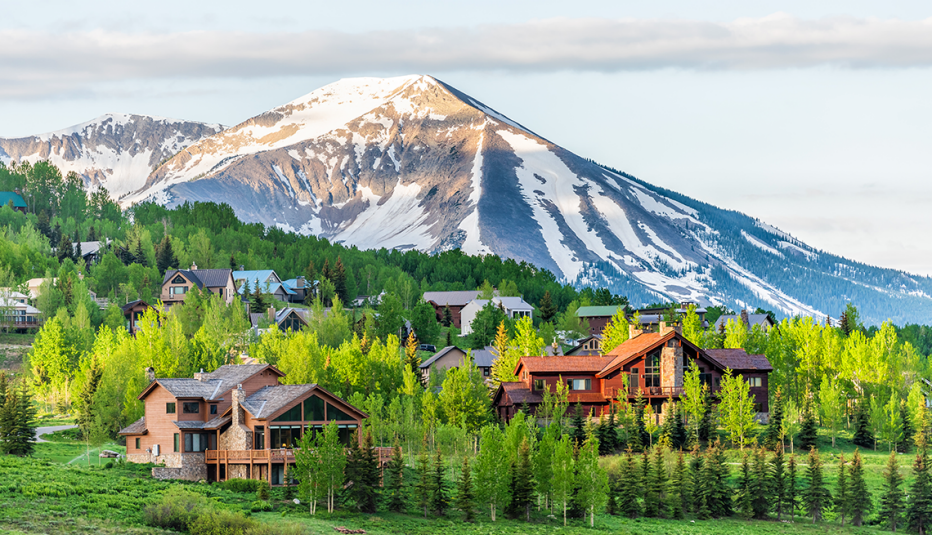
How to Find the Best Vacation Rental
28 tips on planning — and enjoying — time away from home
Or Call: 1-800-675-4318
Enter a valid from location
Enter a valid to location
Enter a valid departing date
Enter a valid returning date
Age of children:
Child under 2 must either sit in laps or in seats:
+ Add Another Flight
Enter a valid destination location
Enter a valid checking in date
Enter a valid checking out date
Occupants of Room
Occupants of Room 1:
Occupants of Room 2:
Occupants of Room 3:
Occupants of Room 4:
Occupants of Room 5:
Occupants of Room 6:
Occupants of Room 7:
Occupants of Room 8:
Enter a valid date
You didn't specify child's age
There are children in room 1 without an adult
You didn't specify child's age for room 1
There are children in room 2 without an adult
You didn't specify child's age in room 2
There are children in room 3 without an adult
You didn't specify child's age in room 3
There are children in room 4 without an adult
You didn't specify child's age in room 4
There are children in room 5 without an adult
You didn't specify child's age in room 5
You have more than 6 people total
Please select a trip duration less than 28 days
There must be at least 1 traveler (age 12+) for each infant in a lap
Enter a valid From location
Enter a valid start date
Enter a valid drop location
Enter a valid drop off date
Select a valid to location
Select a month
Enter a valid going to location
Enter a valid from date
Enter a valid to date
AARP Value & Member Benefits
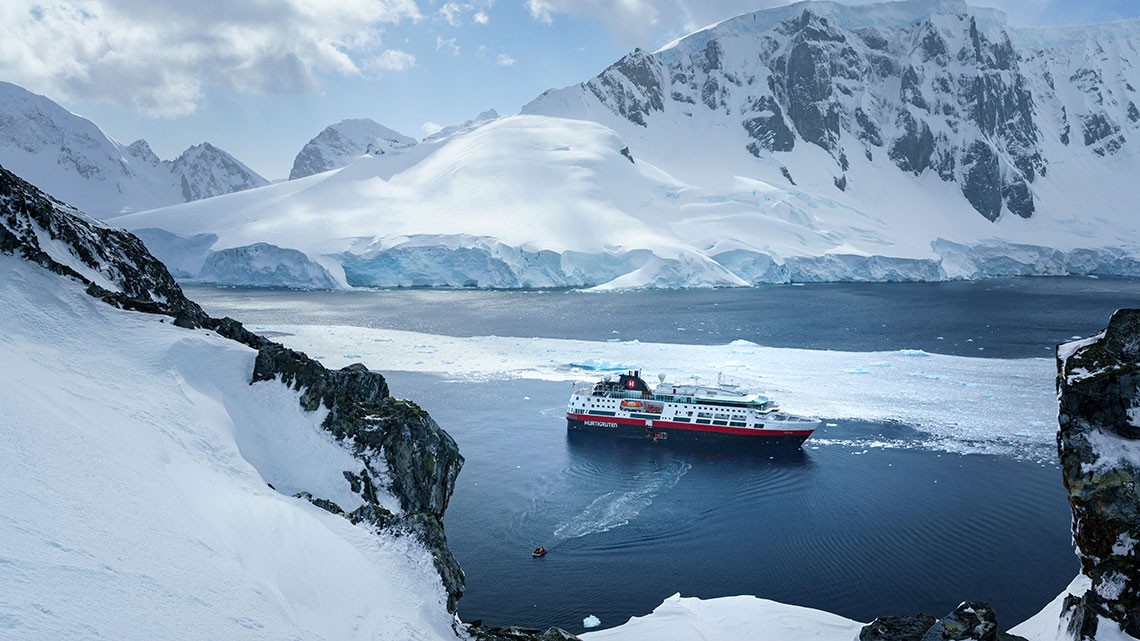
HX: Hurtigruten Expeditions
5% off cruise fares and a €100 per person onboard credit
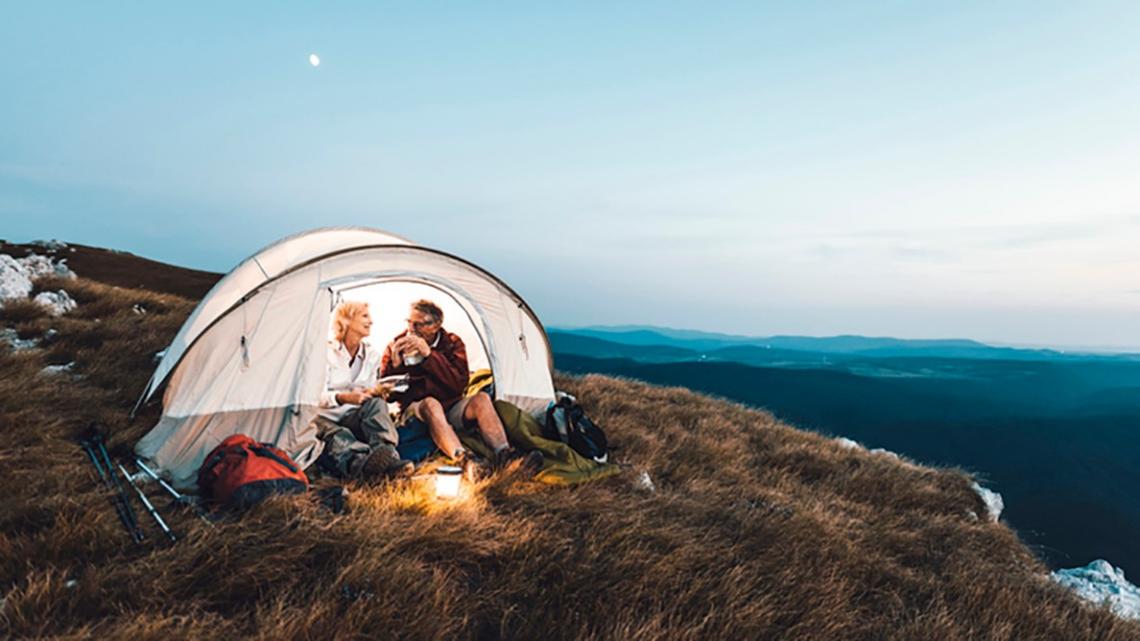
AARP Vacation Ideas
Ideas for every type of trip – from cruises to road trips
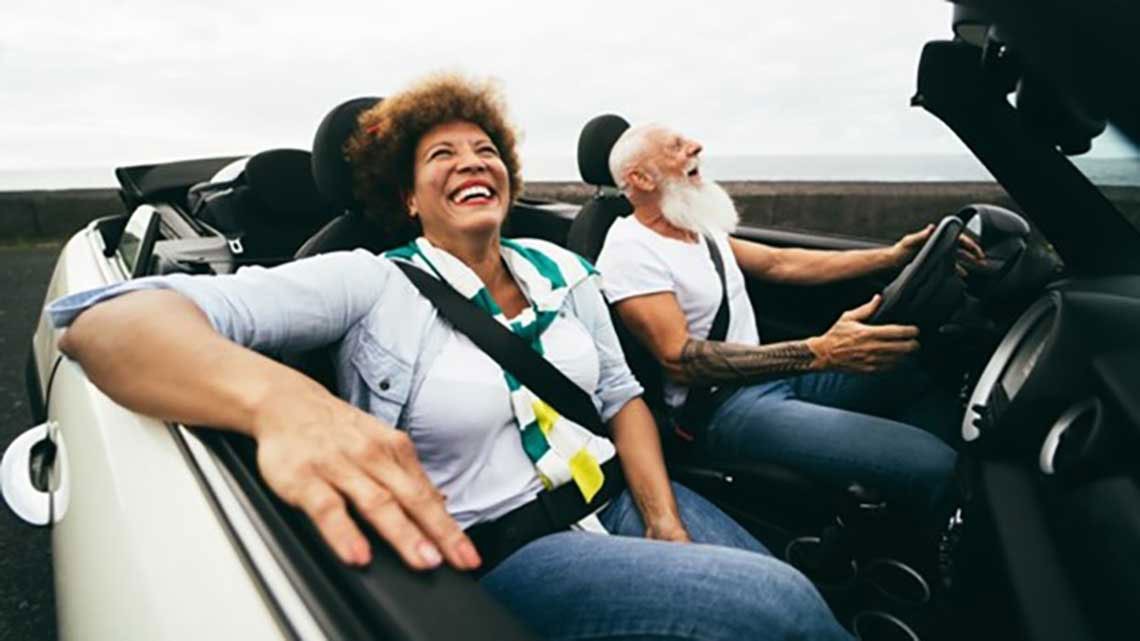
AARP Travel Center Powered by Expedia: Car Rentals
Up to 30% off select car rentals

AARP® Staying Sharp®
Activities, recipes, challenges and more with full access to AARP Staying Sharp®
SAVE MONEY WITH THESE LIMITED-TIME OFFERS

IMAGES
COMMENTS
Complete Guide. Hikeandbackpack 13 Mins Read. Camping is an outdoor recreational activity that involves spending time in a natural setting away from civilization. It can be a solo adventure, a romantic getaway, or a fun family vacation. Camping allows you to connect with nature, escape the stresses of daily life, and experience the beauty and ...
Camping is a form of outdoor recreation or outdoor education involving overnight stays with a basic temporary shelter such as a tent.Camping can also include a recreational vehicle, sheltered cabins, a permanent tent, a shelter such as a bivy or tarp, or no shelter at all.Typically, participants leave developed areas to spend time outdoors, in pursuit of activities providing them enjoyment or ...
Comfy Pants - I like to bring leggings or fleece pants for chilly evenings. Sweater or Jacket - Personally, I like to bring both a fleece sweater and a synthetic down jacket. Ideally, avoid bringing cotton. Sleep Clothing - This is the clothing you wear in your tent, and only in your tent.
recreation. camping, recreational activity in which participants take up temporary residence in the outdoors, usually using tents or specially designed or adapted vehicles for shelter. Camping was at one time only a rough, back-to-nature pastime for hardy open-air lovers, but it later became the standard holiday for vast numbers of ordinary ...
Camping is an outdoor activity where you temporarily live and sleep outside, typically in a tent, recreational vehicle ( RV ), or under the stars. It's a way to connect with nature, escape from your everyday routine, and spend quality time with friends or family. The term camping encompasses a wide range of approaches to outdoor accommodation ...
Camping is a wonderful way to connect with nature and create unforgettable memories. However, for beginners, it can be overwhelming to plan and execute a camping trip. Here are some helpful tips to ensure a successful camping experience: Choosing a campsite. When selecting a campsite, consider factors such as location, amenities, and activities.
CAMPING TRIP definition | Meaning, pronunciation, translations and examples
Planning a camping trip can be a fun and rewarding experience, but it also requires some preparation and research. Whether you want to camp in a state park, a national forest, or a private campground, you need to know what to pack, where to go, and how to stay safe and comfortable. TripSavvy offers you the complete guide to planning a camping trip, with tips on choosing a location, setting up ...
Camping is a recreational (and oftentimes laid-back) activity pursued outdoors, away from cities and towns and in the lap of nature, with fresh air and (occasionally) wildlife for company. One can set up a tent, or live in a caravan, camper-van or motor-home when camping. But the classic camping trip involves toughing it out in tents - and at ...
But to get the full experience, you yearn to see the dark, starry skies. To listen to the yips of coyotes. To watch the sun rise on a silent, dewy morning. Camping in the great outdoors transforms a regular old road trip into an epic experience. So pack up your tent or hitch up the fifth wheel — adventure awaits.
CAMPING meaning: 1. the activity of staying in a tent on holiday: 2. the activity of staying in a tent on vacation…. Learn more.
Camping is an activity in which people live in tents or other temporary shelters in the outdoors. It is a popular recreational activity throughout the world. Campers experience fresh air, wildlife, and living in nature for a short time.
CAMPING definition: 1. the activity of staying in a tent on holiday: 2. the activity of staying in a tent on vacation…. Learn more.
Camping trip synonyms, Camping trip pronunciation, Camping trip translation, English dictionary definition of Camping trip. n. 1. a. A place where tents, huts, or other temporary shelters are set up, as by soldiers, nomads, or travelers.
CAMPING definition: the activity of staying in a tent for a holiday: . Learn more.
Before starting the planning process, establish a set of ground rules for the group. Post the rules and ask everyone in the group to adhere to the rules. Encourage open communication, seek compromise and address issues early. Focus on the positive and remind the members of the shared vision for the trip.
Hula skirt: When traveling on rocky or dusty roads, RVs can kick up a lot of debris and stones. A hula skirt can be attached to the rear bumper of an RV to prevent this debris from hitting vehicles behind the trailer. 29. Rig: Rig is one of the many camping terms used to refer to an RV.
Definition of camping noun in Oxford Advanced Learner's Dictionary. Meaning, pronunciation, picture, example sentences, grammar, usage notes, synonyms and more. Toggle navigation. ... a camping trip; We go camping every weekend. No overnight camping is allowed in city parks.
camping trip These examples have been automatically selected and may contain sensitive content that does not reflect the opinions or policies of Collins, or its parent company HarperCollins. We welcome feedback: you can select the flag against a sentence to report it.
camp (verb) camp (verb) camping / ˈ kæmpɪŋ/ noun. Britannica Dictionary definition of CAMPING. [noncount] : the activity of sleeping outdoors in a tent usually for enjoyment. Camping is one of our favorite things to do. She likes to go camping on weekends.
The meaning of CAMP is a place usually away from urban areas where tents or simple buildings (such as cabins) are erected for shelter or for temporary residence (as for laborers, prisoners, or vacationers). How to use camp in a sentence.
Definition of camping noun from the Oxford Advanced American Dictionary camping noun. noun. NAmE / / ˈkæmpɪŋ / / [uncountable] jump to other results living in a tent, etc. on vacation Do you go camping? a camping trip camping equipment. Take your English to the next level.
Limiting your camping trips to a weekend before building up to longer stays is a good idea too, she says. Cleveland recommends a combination of tent and car camping (which is when you pull your car right up to a campsite and keep everything handy, as opposed to hiking to the site and carrying everything with you) for a first camping trip with children.
The glamping definition comes from its status as a portmanteau, a word made by combining the spellings or meanings of two or more words. In this case, the word glamping is a blend of glamorous and ...
Here are the Top 10 in the Mountain Region: Saddle Mountain — Kaibab National Forest — Arizona. Sacred White Shell Mountain — Colorado. BLM Middle Fork Shafer Canyon Dispersed — Utah ...